‘Football is part of who we are’

Qushon Lewis is 13 years old and he plays football for his school, Christianburg Multilateral School with the Eagles United FC team. This young man told the Pepperpot Magazine that football is his sport. It keeps him fit and the players inspired him to become a part of the team (Carl Croker photo)

Sunday, October 16, 2022
- ‘Beauty Alley’ Residents
The Ariwa Culture Group
nurturing the talents of young children in the village
is coming. Any kid from the village can join.”
Joan Benedict
By Telesha Ramnarine

THE Ariwa Culture Group in St. Ignatius, Central Rupununi, is nurturing the talents and skills of young children in the vil lage thanks to the selfless efforts of 42-year-old Joan Benedict who volunteers her time and resources to help them learn her art and craft trade, as well as traditional music and dancing.




Benedict, the moth er of five, formed the group about 10 years ago with the help of a former Toshao, Yusa Xavier, who initially helped with money to pur chase materials for Benedict to sew outfits for the kids to perform.
But eventually, Benedict was solely caring for the group; even so, she likes to refer to it as the “vil lage culture group.” “I say it’s the village culture group
even though I don’t receive help from anyone because I love doing these things. I do craft, make costumes and hammocks,” she related in an interview with Pepperpot Magazine.
Reflecting on why she formed the group in the first place, she said she thought about the fact that the village did not have a culture group. It was also along the line of things that she enjoyed doing. “I love to make the costumes for the children to wear, so I decided to start a group,” she recalled.
At the moment, it is very small, with just about seven children, rang ing from ages six to 12. But they would prove to be just enough if ever the village was receiving a visitor and a welcome song or dance needed to be done. “I would teach them how to do it, like if a minister or someone else
In the beginning, learning the songs and dance was hard for Benedict, but she learned as she went along and regularly checked the internet for ideas. Fur thermore, with the Brazil ian culture exerting such a strong influence where she lives, Benedict said she researched their culture and others to learn various danc es.
“We can get a dance from the internet and change it up; that’s how we learned. The indigenous/traditional dances we do on our own.
We get the local singers from around here, and we use their music and formu late our own dances,” she related.
Everything is free. “We don’t charge anyone who wants to join. It’s pure ly voluntary,” she said. As much as the group is doing well and making a difference in its own way, Benedict said the kids sometimes cannot
Group is not well known, she surmised. Whatever the reason, she hopes the group will be able to tap into the many oppor tunities others are enjoying.
“We never got in vited to Georgetown. We always in the village and we were wondering why we are not being chosen for
help but feel bad when they see other groups getting the opportunity to travel to Georgetown to participate in various events.
Perhaps the reason for this is that the Ariwa Culture
anything. Heritage passed and we didn’t get picked for anything…had different people from all around and everyone says our dances are nice and why we are not be ing chosen,” she expressed, adding, “I hope we will get noticed and get some op portunities.”
At the moment, Ben edict said she focuses on helping the children to learn how they can make money from art and craft. “Right now my aim is to show the children how to do their own clothes, foot band, head band; how to decorate them, and showing them how to make money out of what we’re doing.”
Benedict supplies some of her craft items to the Ministry of Amer indian Affairs and would also receive orders from Georgetown and even overseas.
II CHRONICLE PEPPERPOT Sunday, October 16, 2022
–
Some of the girls in the Ariwa Culture Group
Putting on a performance in the village And child in the village, ages six to 12, can join the group
The Escapé Book Club
managing the book club, it was a breeze for Sameerah.
“From the very first meet ing, I knew exactly what I wanted Escapé to be. There needed to be a healthy envi ronment where people can have an outlet to rejuvenate and socialise through the love of books. It would also be a safe space to discuss issues troubling members in
am reading, and I embody the characters. On the other hand, reading makes me see all the possibilities there are in the world. It opens a new perspective in every book that I pick up. It shows me that I have no limits.”
The club meets once a month in the confer ence room of the Tropical Shipping Building and has
events. Escapé decided to volunteer and execute ideas to help communities in any way they could, along with food, clothing, and decor to match the seasons. For example, during October for Breast Cancer Aware ness Month, Escapé vol unteered with the Guyana Cancer Foundation at their Candlelight Vigil. Members
kids and how Escapé Book Club can mobilise to bring cheers to them. I thought about a Holiday Gift Drive where we can have new unwrapped gifts donated to an Orphanage. I cre ated a poster and shared it on Facebook and the response was good. Books, toys, hampers, etc. were all welcome. To get the mem
By Telesha Ramnarine
SAMEERAH MohamedFerouz wanted to make a difference in the lives of persons who were feeling lonely, bored or fed up with being shut in during the pandemic. Toying with a few ideas, she eventu ally came up with just the initiative that she thought would make a real impact.

With the COV ID-19 pandemic raging in 2021 and affecting people’s mental health worldwide, due to minimum interaction and other factors, Sameerah remembers that it began taking a toll on her as well.
“It was getting to me as I was accustomed to a fast-paced lifestyle…I started to think about what I enjoyed; I always enjoyed reading books growing up. However, life had gotten so busy that I hadn’t got ten the chance to sit down
and indulge in one for a while. Then it came to me! We needed to socialise in a healthy COVID-safe way,” she reflected.
So in June 2021, Escapé (pronounced Es-capay) was born. Sameerah could see that there defi nitely was a need for a book club. “Reading is so impor tant and many individuals take books for granted. Knowledge is power and I wanted to share that with everyone,” she said.
With a Bachelor’s Degree of Science in hand, she is currently pursuing her Master’s in Business Administration. She has always been actively in volved in extracurricular activities in college and is part of various social and cultural groups, and dance and cheerleading teams. She has also always en joyed volunteering. So when it came to
their everyday lives. They would be able to bond and relate to one another, talk as they please and relax, all while sharing their love for books.”
The name of the club that she chose also holds special meaning. She explains: “Personally, when I read, I forget where I am. I get lost in the novel that I
themed potlucks depending on what month and season it is. At the start of 2022, the members set out a few goals, one of which is to work on their mental health and practise self-care.

Another main goal is to give back to the commu nity and host two or three charity events annually as well as attend charitable
also attended the High Tea & Fashion Show fundraiser for the GCF as well.
For the holi days, they also did a fes tive themed meeting with clothes, decor and food.

“We had so much fun. Since Christmas and the New Year were fast ap proaching I began to think about the less fortunate
bers involved, each was to bring in an item. We have received several donations already from companies and individuals. We intend to wrap the gifts and have them personally donated to Guyana Red Cross Chil dren’s Home specifically to Girls and Boys ages 2-14. We look forward to seeing those happy faces on deliv ery,” Sameerah shared.
The club also did an Easter Clothing Drive for the girls of the Mahaica Children’s Home (Ages 13-19), and as the holiday season is approaching, they are getting ready for their annual Holiday Gift Drive.
“Something excit ing that we do is having zoom meetings with the authors of books that we’ve read. We already had three zoom meetings with various authors. We already have t-shirts, totes and pens. I can absolutely say that we are already a family. We not only have meetings, but we do things outside of the club. We volunteer together, have lunches together and attend events together,” Sameerah related.
The club currently has 14 members, having doubled in size for its oneyear anniversary.
IIICHRONICLE PEPPERPOT ― Sunday, October 16, 2022
– A safe space to rejuvenate and socialise through the love of books
Sameerah Mohamed-Ferouz
The club’s most recent Halloween-themed meeting
Members celebrating the first year anniversary of the club
‘Knowing the law is essential’
- Law enforcement officer and newly-admitted attorney-at-law says
By Dillon Goring
“You cannot be a po liceman and you are not knowledgeable about the law.” These were the sentiments expressed by one new ly-admitted Attorneyat-Law Delon Fraser, who was recently admitted to the bar along with three of his law enforcement col leagues.
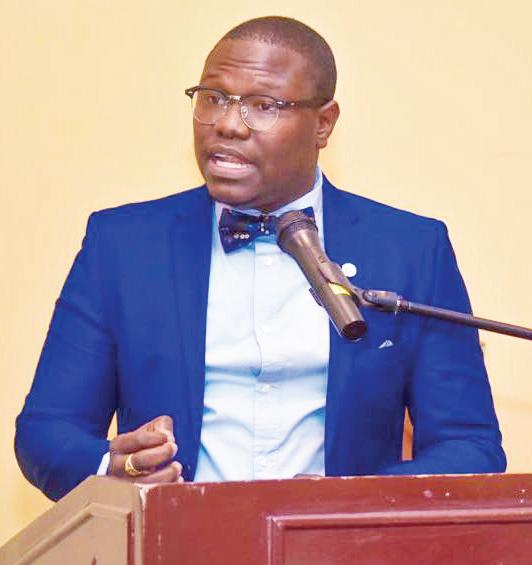

The Pepperpot Mag azine sat down with As sistant Superintendent Delon Fraser, who was very candid. He shared his struggles, victories and joys about what he considered a significant but great achievement.
He began by telling us that he grew up hav ing a desire to take a stand against injustice and unfair treatment meted out to others
who could not stand for themselves.
“The acquisition of knowledge is never for self-gratification, but it is to better mankind. It is these very things that drove my desire to learn, to have knowl edge of things so that when persons are in need of assistance, you are that person that they will look to help them in whatever situation, scenario, or case that they would have found themselves,” Fraser passionately told the Pepperpot Magazine.
According to him, his drive and passion for helping others come from the fact that he needs to have a greater knowledge of his career.
“Therefore, I cannot do that if I limit myself as it relates to my pursuit of educational advance
ment to help others,” he explained.
Fraser proudly fol lows in the footsteps of his grandfather, who joined the Guyana Po lice Force and is the “head coach” of the team.
He noted that his grandfather would al ways remind him that the way in which he presented himself is the very same way that peo ple will address him. He also expressed gratitude to others who helped him in his journey:
“My mentor, my friend, my brother, Dex ter Mark Godfrey Todd, I thank God for guiding you in my life 18 years ago as the mentor for the tactical Service Unit Team. You have sup ported me all the way, from the beginning of my Academic journey through to Law School. I could not have asked anyone else to present my petition. It is a great feeling to have you do me this honour in pre senting my petition to day,” Fraser was quoted as saying in his own words as he thanked many persons who were contributors to his suc cess.
THE MARRIAGE BETWEEN AN OFFICER AND A LAWYER
“Law of itself is very vast. It provides the ca pacity to understand things beyond your lifetime, why things happen the way they do,” Fraser said as he explained how a lawyer and an officer of the force are related.
He debated the ques tion of how one can en force the law if they do not know the law.
He urged and advo cated for persons who are in law enforcement agencies, particular ly the Guyana Police Force, to pursue a law degree if they have the

opportunity to do so.
Fraser made the point that studying the law at an institution of learning would be a great asset to persons in law enforcement.
“If they know it, then there is not the likeli
late nights and early mornings, writing of supplemental, the wor rying of actually mak ing the top 25 to get to HWLS, to losing two grandparents in short
hood of them making errors to cause detri ment to someone in so ciety and, of course, giving the organisation a bad name. Suffice to say that if I study then I would get a greater understanding [of how] not to [negatively] af fect the lives of people in society,” Fraser said.
Fraser expressed the fact that he is now in a better position to en force the law.
REGRETS, FAILURES ALONG THE WAY, BE YET
THANKFUL MOMENTS
“There were lots of
space of time. The lack of financial resources to get this study done was also frustrating. So many ‘no’s’, the re fusal to take my calls and failure to respond to my messages espe cially when seeking scholarships. Then to complete law school during the most horrific time of my existence on earth, COVID-19,” he said. “And just when I thought it was all over at the beginning of my Second year of law School, tragedy struck me once again when I saw my home away from home, my space
in times of finding hard solutions to prob lems both for school and work and a place I kept all my prized pos sessions, went up in flames.
Millions of dollars up in smoke, invalu able lectures, books and other resources… I was lost, and deeply saddened, but I knew I had to finish, because I knew God would not have brought me that far and left me. So like Job, I kept the faith since I had people depending on me, my cheerleaders, my family and other wellwishers waiting on me to finish. Nevertheless, words cannot express that most wonderful feeling that I am ex periencing right now.”
IV CHRONICLE PEPPERPOT Sunday, October 16, 2022
Delon Fraser, Attorney-at-Law and Law Enforcement Officer
A day out at Section ‘B’ Christianburg
one of whom had a logging business.
This village originated as a logging settlement before Linden, and its early settlers were three friends: Patterson, Spencer and Blount.
Patterson settled and established Christiansburg, Wismar and he was the founder of the first sawmill in Christianburg, which is under the National Trust, but that very sawmill was dismantled and only the waterwheel re mains as a historic landmark.
Next to the waterwheel, the old Magistrate’s Court used to be the home of Pat
of the munici pality and was one of three wards, that is, Wismar, Mc Kenzie, before the municipality was formed, but there is a local government in place and it was called Mackmarburg.
The people are skilled professionals, teachers, nurs es, miners, business people, small-business operators, carpenters, masons, contrac tors and many others who work in both the private and public sectors.
and it seems that newer build ings have been constructed.
In this community, no one seems to be in a rush and they go about their daily routine civilly and it is a close-knit village where the people are very neighbourly.

Christianburg, Wismar has a lot of landmark build ings, including churches that
By Michel Outridge
LAST week the Pepperpot Magazine visited the hill top village of Section ‘B’, located in Christianburg, Wismar, Linden, Region 10 (Upper Demerara-Berbice) to highlight the way of life of the locals. Christianburg is divided into three sec tions, A, B and C and also has one of the oldest cem eteries known.
This community can be accessed via the Blueberry Hill access road, a short dis tance from the glassy Dem erara River, a very scenic site and it has no all-weather roads but muddy back alleys and ‘shortcuts’ that go in and around the village itself.

Preparations are under way to construct an all-weath er road in Beauty Street, and, upon completion, it will become a one-vehicle road.
Residents have expressed their gratitude for the new development which will ben efit them.
However, they would also like to have an upgraded drainage system since the val leys are often flooded during rainfall, causing quite a bit of erosion.
Section ‘B’ Christianburg
is a bit of a maze with valleys and alleys going all around the village, and if you do not know where you are going, it is quite easy for you to become lost since the back alleys lead to different parts of the community.
At the rear of this village, there is a Blue Lake, which is home to many caimans, but one can take a swim at one’s own risk. At times, the ducks would venture in for a dip to offset the heat of the day.

The people of this village are quite friendly, and accom modating and did not hesitate to take a bit of their time out to entertain the team during its visit.
The people’s way of life is simple; they do many things from their homes to earn while others leave the village for work.
The population for Sec tion ‘B’ is about 500. The locals are primarily Afro Guyanese and it is a closeknit community.
Although it resembles a squatting area, there is elec tricity, potable water supply, landline phones, and internet in some parts but no asphalted roads.
This village goes up and downhill and some dwelling
houses are set on hills. The walk-up is steep and can be a bit tricky with an unsure footing, but once you get the hang of things, the view is quite spectacular, like other parts of Linden.
In Beauty Street, which is also called Pompey Street, there is a shop which serves as a sports bar and just across the road, there is a huge man go tree, a place where make shift wooden benches serve as the meeting place for locals.
This is the ‘chill spot’ and locals, mostly the men, would gather there daily to talk about things and also keep a watch on the community.
Section ‘B’ Christianburg is home to many talented footballers and it is home to many players and members of the Eagles United FC.
The village is also one of those places you tend to linger a bit longer than you should because the people are easy-going and the place is nice despite challenges and the people are trying their ut most to eke out a living.
Christianburg, Wismar, Linden
Christiansburg, Wismar, Linden in Region 10 is an idyllic village that was first established by three friends,
terson and his ancestors are buried in the compound.
The water wheel was built in 1985 by a Scottish engineer, John Danglish Pat terson, who installed a large iron wheel as a prime mover for his sawmilling equipment.
Patterson’s hydro-pow ered sawmill is the only of its kind. The sawmill was dismantled, but the water wheel remains an example of how the timber industry was mechanised and the richnatured resources of the area.
Christiansburg is a ward
The population is very large and is scattered across the three sections of Chris tianburg.
It is a community which overlooks the Demerara River and it is a tranquil setting, which brings out nature at its best with a lot of greenery.


This place has a lot of trees, colourful plants, flow ers in many bright colours and well-kept yards and houses.
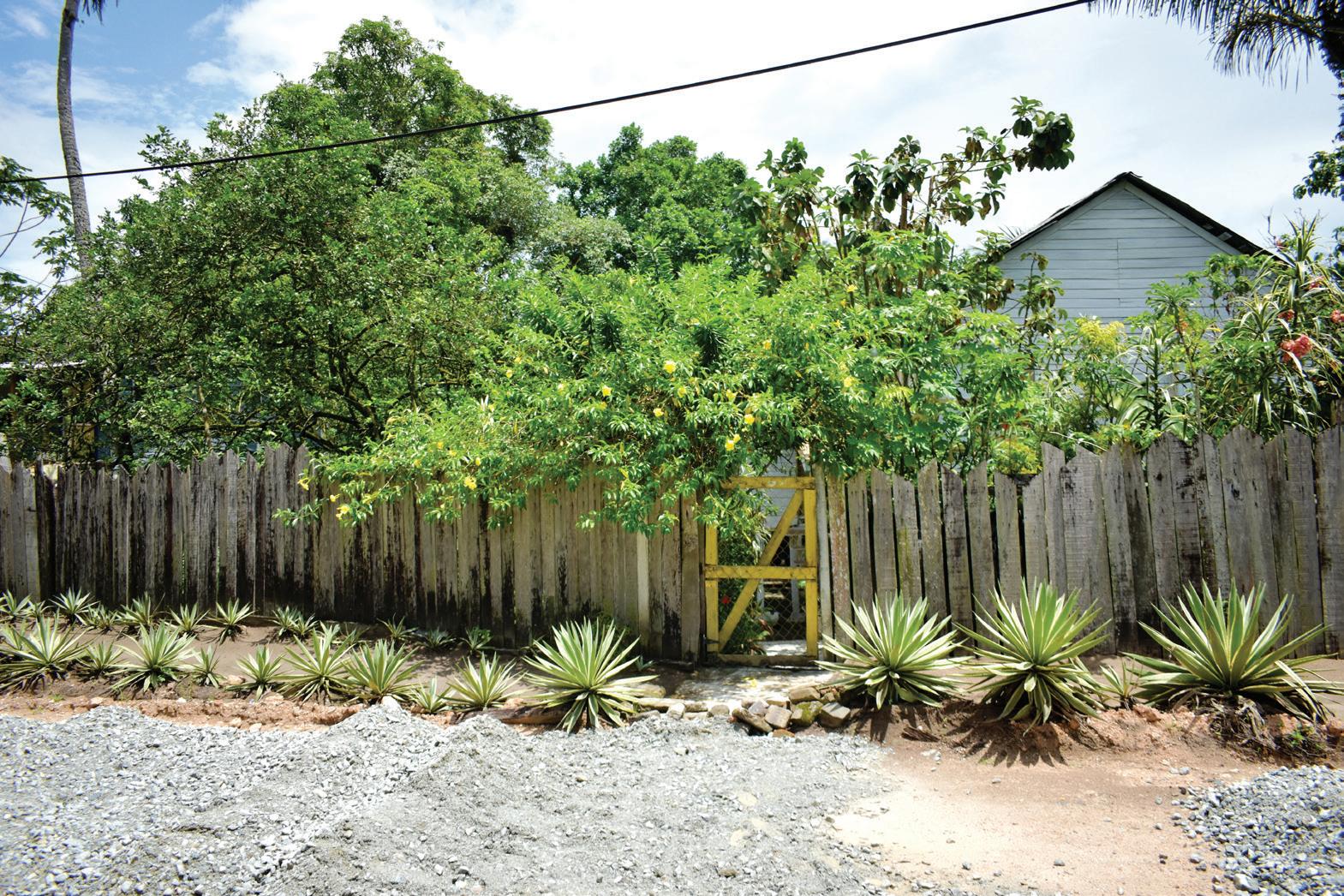
Over the years, the place has seen some development in terms of all-weather roads
have withstood the test of time and other historical sites which remind the people of its history.
It can very well become a tourist destination and it is very accessible overland and water and it is one of those places you go and want to sit a little bit longer by the river.
By the river, there are benches and other chairs under shady trees where you can sit and have some quiet time to yourself any time you wish.
VCHRONICLE PEPPERPOT ― Sunday, October 16, 2022
The Riverside view at Christianburg
Section ‘B’ Christianburg (Carl Croker photos)
The Green lake in Stuart Path
The people of Section ‘B’ Christianburg
By Michel Outridge
FOR Ann Douglas, home is Bruce Alley, Section ‘B’ Christianburg, Wismar,
and even had a stint at the National Centre for Educa tional Resource Develop ment (NCERD),” she said.
Douglas told the Pepper
local of the village and had lived with her family at a house across the alley but they relocated to another house.
She is hoping that she can get her own house lot and have her own house as a mother of two. She is still re siding with family members.

Bobb reported that she is an indoor person and she
that she was looking for work and could not find any thing, so she decided to use her skills and prepare chips to sell from her verandah.
The 47-year-old added that she is originally from West Coast Demerara but has been living in the village for a long time.
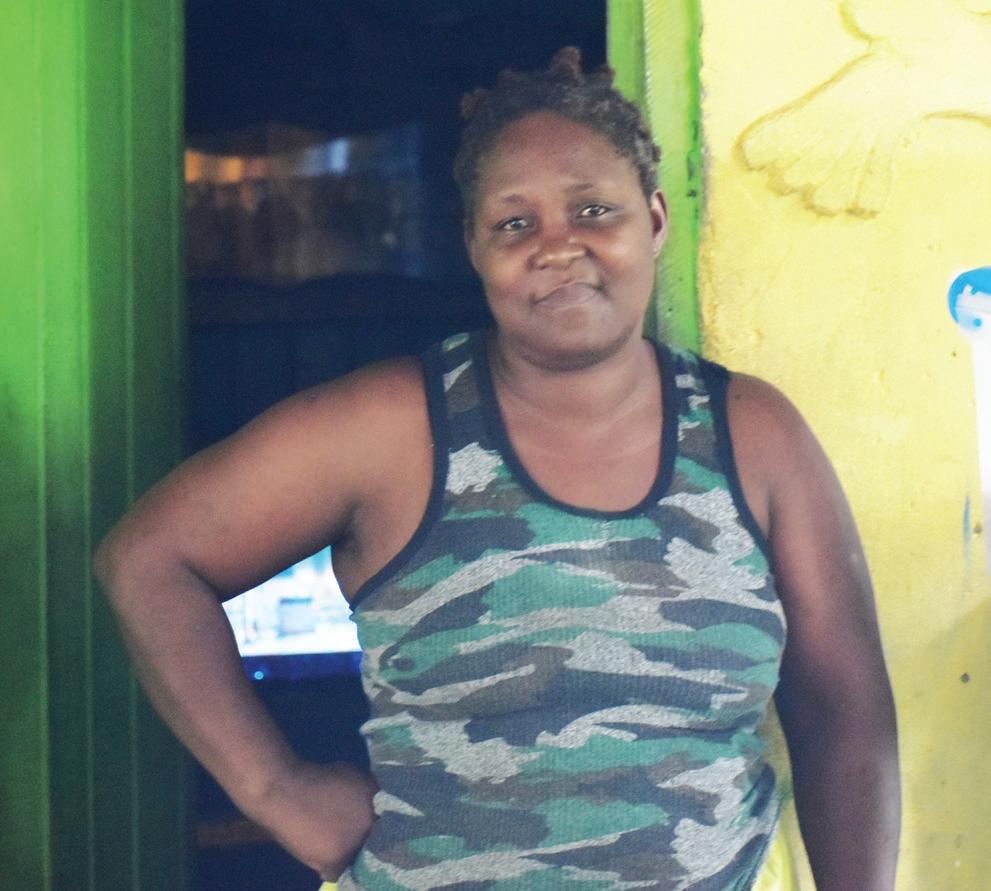
She describes life as fair even though they lack some
While there, he enter tains himself by playing some music and he is one of the young men who began to do some self-help work in the village, such as patching the alleys.
Isaiah is a skilled work er and he is hoping to get steady work in construction.

Sharon Morris, stay-athome mom
The mother of three added that she is looking for work, but so far, she has been unsuccessful in getting a steady job.
“I would like to have a permanent job but not security because I am not comfortable with working at night,” she said.
Linden, a place she has been living since she was a child.
The 53-year-old said that she relocated to Linden with her parents, and they re side on a double lot so her parents live just next door, which is convenient.
Douglas is originally from Buxton, East Coast Demerara and is the only daughter with four brothers.
The mother of two is a teacher attached to Watooka Day Primary School and has been in the teaching profes sion for more than 20 years, but she is burdened with a lot of paperwork these days.
“I had wanted to become a nurse, but at that time, things weren’t as I hoped and instead went into the noble profession of teach ing and I loved it. I even got qualified at Cyril Potter Col lege of Education (CPCE)
pot Magazine that the village is nice and it is a place where she feels comfortable in her own house, a neat, cosy oneflat concrete edifice.
She stated that the neigh bourhood is safe and the people look out for each other and things are not as expensive as living in the city because they grow their own food s mostly.
Shonnett Bobb, the nurse
Meanwhile, the Pepper pot Magazine also met a lovely young lady, Shonnett Bobb, a nurse attached to the Linden Hospital Com plex in the Male Ward and a resident of Maxwell Alley, Christianburg.
The 30-year-old had worked the night shift and was at home doing many things before she could get some rest to return to work that evening on Monday last.
Bobb stated that she is a
doesn’t really socialise but knows that the village is quite peaceful.

“I became a nurse be cause it is part of me to help people and I fulfilled my dream to become a qualified nurse, serving my commu nity,” she said.
Annette Anderson, the chips vendor
Annette Anderson is a resident of Section ‘B’ Christianburg and she is a stay-at-home mom who makes chicken foot and plantain chips to sell right from her house.
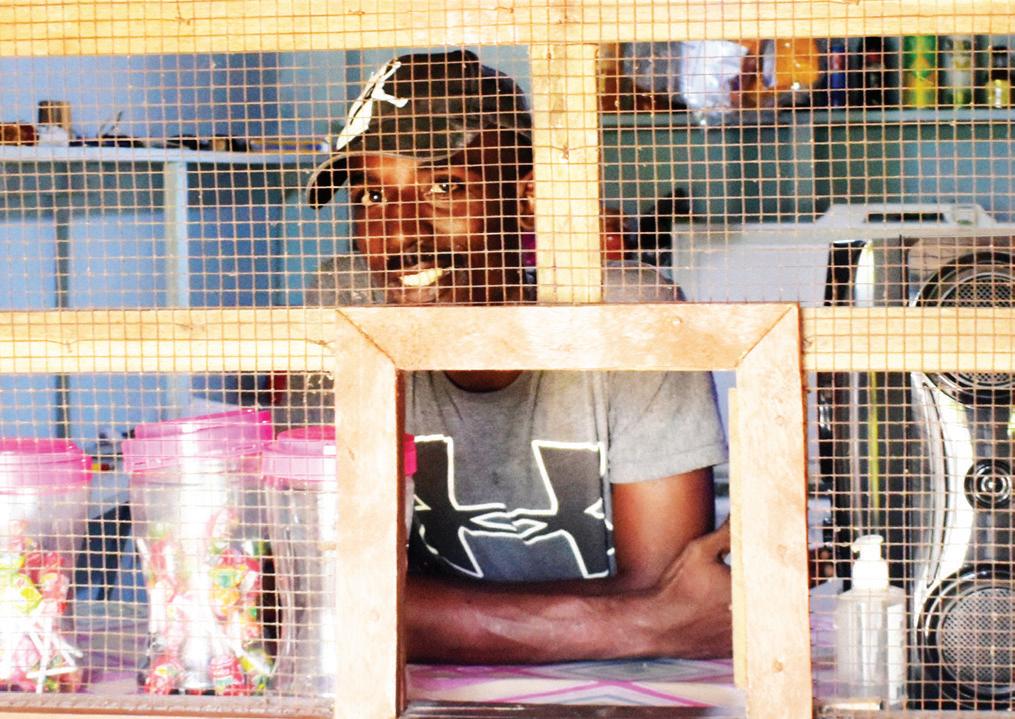

The mother of five said
basic necessities but is hope ful one day, she will be able to have her own small shop.
That section of the vil lage doesn’t have internet, landline phones and roads.
Emmanuel Isaiah, the shopkeeper
Although he resides at Blueberry Hill, Emmanuel Isaiah visits Mango Alley every day to assist his uncle in his small shop, which is housed in the lower flat of his house.
The 30-year-old, who is camera shy and did not want to be photographed, told the Pepperpot Magazine that his uncle was out, so he was tasked with managing the shop.
The 45-year-old told the Pepperpot Magazine that she is a resident of Lot 37 Stuart Path, Wismar and has lived all her life in the village.
Morris is, however, glad for the newly paved road they are getting and remains positive something will give soon despite many challenges.

VI CHRONICLE PEPPERPOT Sunday, October 16, 2022
Ann Douglas, the teacher (Carl Croker photos)
Shonnett Bobb, the nurse
Annette Anderson, the chips vendor
Emmanuel Isaiah, the shopkeeper
The resourceful people of Beauty Alley are determined to earn
top night spots in Linden in those days.
“I grew up with my grand parents and I took care of them even after marriage. I never moved away so they gifted me this house. It was theirs,” she said.
She stated that her grand father died at age 98 and her grandmother at age 84 and she was with them the entire time because she went to live with them as a child.
Arthur added that her moth er passed away four years ago when she was 81 years old.
The mother of three pointed
produce in the community.
“I really don’t be at home during the day… [I am usually] at the market selling and my neighbours would look out for me. This is a good neighbour hood and the people are neigh bourly,” she said.
Veronica Allicock, the farmer
Also in the same street is the home of Veronica Allicock, who is a farmer and is also look ing for work.
The 48-year-old told the Pepperpot Magazine that she would sell the produce when there is a harvest, but recently
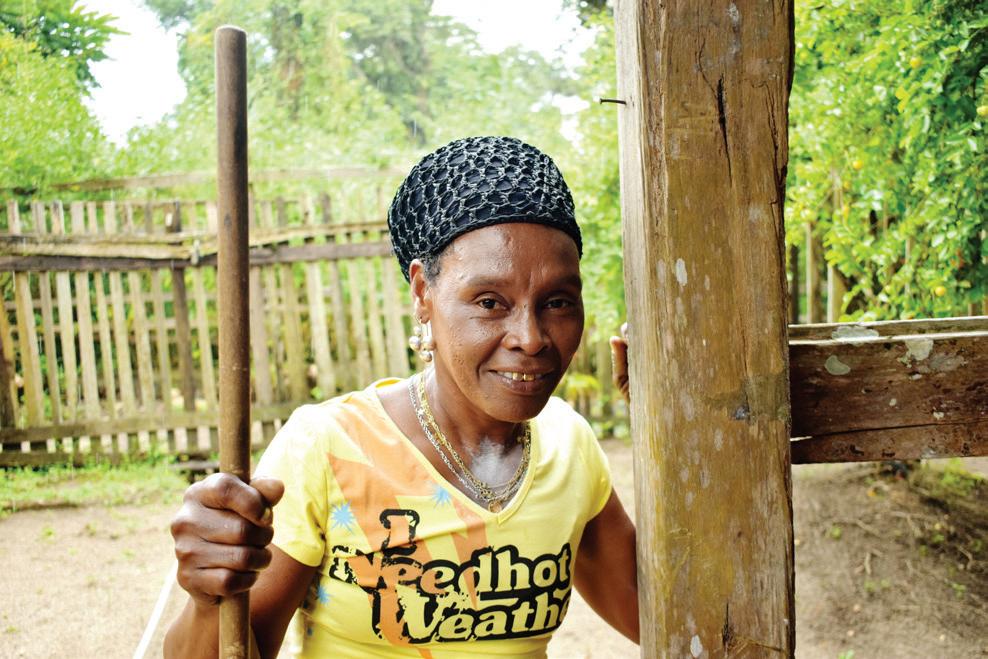
The 37-year-old stated that on weekends he would host games to support the youths and when they can, they would donate stationery and books to the children in the community.
By Michel Outridge
THESE days, things are be ing done in slow-motion for 63-year-old Grace Arthur, who was once a spritely per son, but due to ill health and other health complications, she has adjusted her lifestyle.
Arthur will be celebrating her 64th birth anniversary next month and she is looking for ward to it.

That day, when the Pepper
medications. She would also walk downhill daily to get some exercise.
The elder told the Pepperpot Magazine that the street she resides in is Pompey Street, but it was nicknamed “Beauty Street” because the late owner of Black Tulip Club was a very beautiful woman and the street was named after her.
Pompey Street had the club, which closed down follow ing the owner’s death; today,
pot Magazine visited, she was with her granddaughter. She had just prepared some ‘mettai’ and was supervising the frying of it over a coal pot in the yard.

“My daughter is a teacher and she asked me to make some mettai for her to take to school to sell because the pupils have been asking for it,” she said.
Arthur related that she did not make mettai or tamarind balls in a while, so she was trying to get a batch out to her daughter for school on Tuesday last.
Due to her diabetic condi tion she cannot do certain things and she is currently recuperat ing from a recent eye surgery.
“My sugar level does be high so my hands would shake, and it is now I am seeing a new doctor, and I am trying to get it stabilised,” she said.
Arthur is also using some home remedies along with her
her descendants reside in the property.
Arthur related that her grandfather told her about the woman, the lady that owned the Black Tulip Club was so beautiful and it was one of the
out that she never worked while she was younger, but after her third wedding anniversary, her husband was retrenched from the bauxite company and they started buying and selling goods.
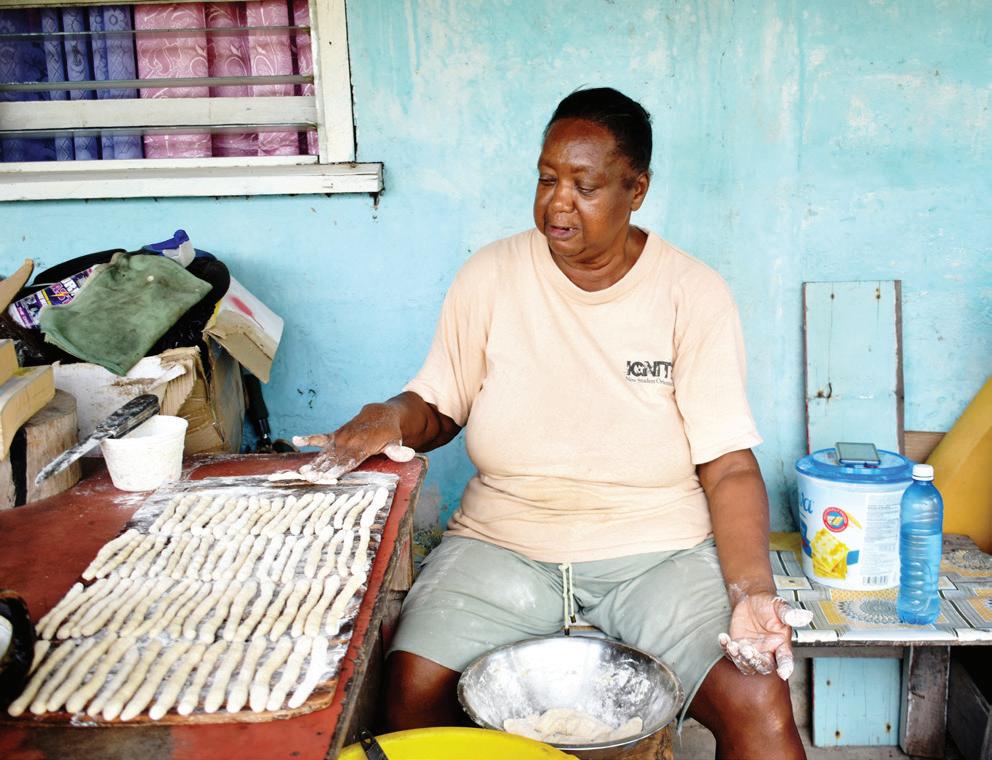
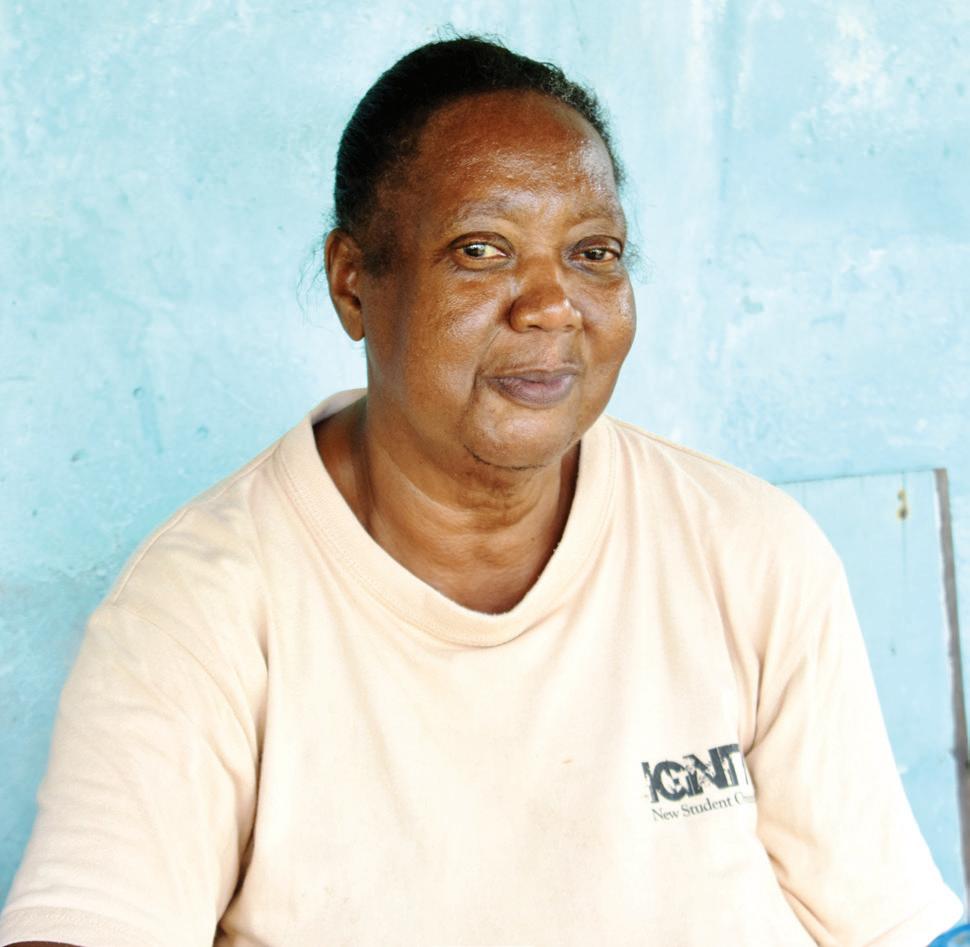
She started vending, and today she has a stall at Chris tianburg Market where she sells clothes and her grandson has a part-time shoe maker small business.
Arthur’s husband is a cash crop farmer and he has his farmlands at Speightland in McKenzie and he would ride around on his bicycle to sell his
there has been nothing to sell since the fruits and vegetables are yet to ‘ripen’.
Allicock disclosed that she has recently constructed a stand in her yard and she is awaiting some funds from a loan she applied for to open her small business selling food and her produce.
“I am depending solely on farming, and at times I do not have anything to sell, so I need to do something else while I wait for the crops to be ready. I wanted to cook food and sell so with the little money I had, I built a stand, so now I have to get some more money to invest in my cooking,” she said.
The mother of one added that things have been hard eco nomically due to COVID-19 and the lack of jobs in that region.
Allicock is, however, op timistic that things will work out for the best in time. She just needs to be patient.
Joseph Mendonca, the sports bar operator
Joseph Mendonca is a part-owner of the only shop in Pompey Street (Beauty Alley) and it was his idea to establish a sports bar while his friend, Clive Nobrega, supported him financially.
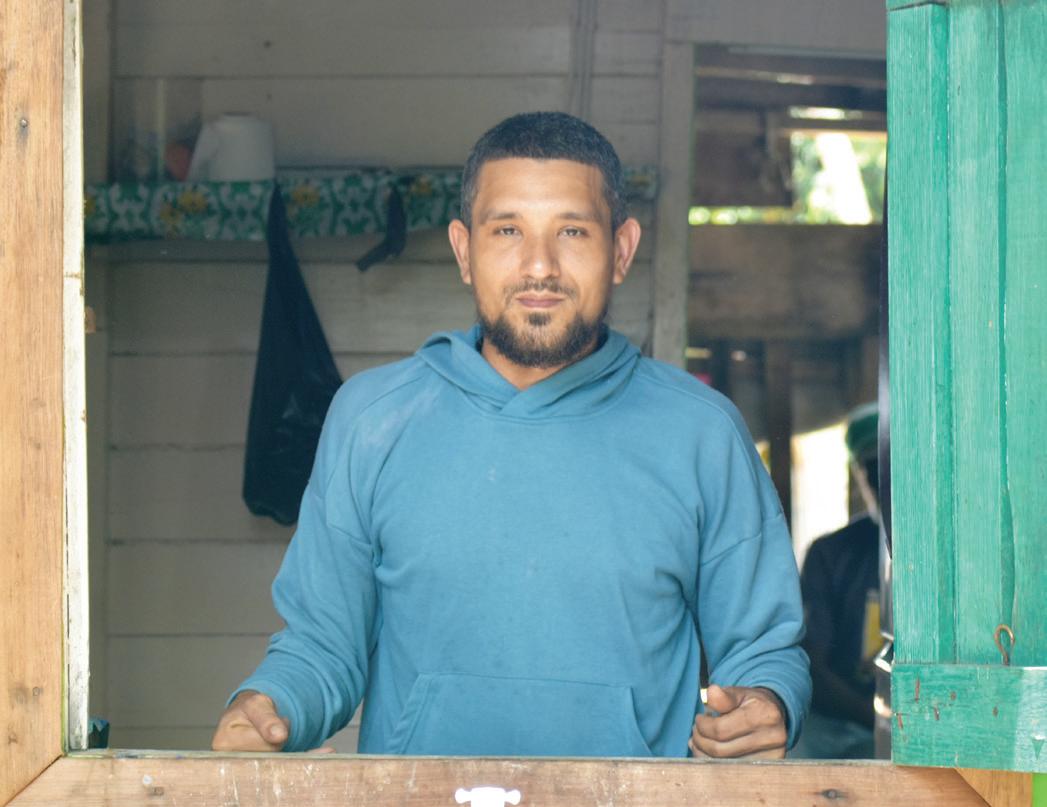
Mendonca reported that he would give back to the commu nity by cooking a huge pot and sharing it with the people like they did on Sunday last.
The father of three pointed out that they would also host barbeques and cook-outs to entertain the people on holidays
and weekends.
The bar serves as a meeting place for the locals because they always have a big-screen televi sion showing only sports and at times, they would watch movies since they have cable television.
Mendonca said the bar opened in 2017, and be fore that the street was known for crime and had a stigma attached, but since they are there, things have changed and it is a safe place for all.
VIICHRONICLE PEPPERPOT ― Sunday, October 16, 2022
Village elder, Grace Arthur (Carl Croker photos)
Preparing ‘mettai’
The coal pot fireside
Farmer, Veronica Allicock
Businessman, Joseph Mendonca
The Riverside Café
By Michel Outridge
EVER since he could distin guish right from wrong, he wanted to establish his own business to become inde pendent. Today, that dream has come true for Colin Small, the proud owner of Colfin’s Riverside Café at Christianburg.
The business opened its doors 12 days ago and, so far, the response has been
overwhelming and Small is in high praises for all that made his dream fulfilled including his parents, siblings and the people of Linden, who are supporting the café.
The 25-year-old told the Pepperpot Magazine that he began realising his dream of being a small business owner when he started to bake pas tries and sell it by the road side at McKenzie Market, Republic Avenue.


Small is a quiet kind of person, who was, however, determined to become a busi ness owner while attending school at Texila University pursuing studies in medicine.
He told the Pepperpot Magazine that he would com mute from the city on Fridays to prepare his pastries, in cluding chicken patties and cheese twist, to sell, and he is putting more effort in his café when he can.
Colin is on rotation at the Georgetown Public Hospi tal Corporation (GPHC) for seven months and 16 days.
Upon completion of his studies, he will become a general practitioner until he decides which field he will pursue.

“When COVID-19 came, I thought about what I could do, because selling on the roadside was not going well and after I took a break and went to the United States for a visit, I went to many places. I visited the fast food outlets and the concept of serving some of the same foods at my own café was birthed,” he said.
Small was looking for ward to becoming settled, and having a place to sell his pastries and the idea of his café was conceptualised.
His home right at the riv erfront was the ideal spot for a café and he began thinking more about establishing a café.
Upon his return to Guy ana, Small related that he had a talk with his mother, Finita Small, who has her own sa lon, his biggest inspiration, and she agreed to assist in making it possible.
Small added that God and his family made it pos sible and he is very pleased the way things have turned out and it goes to show that dreams do come true once you have the backing of good people and faith.
He has in his employ six staffers, which includes four kitchen employees, one wait ress and one cashier.
“My motivation came from my mom. She is a gogetter, a very determined woman, whom I admire and I wanted to be just like her, having my own business and providing employment for people. My parents provided for me adequately, so I was never in need, but I wanted to do my own thing as an en trepreneur,” Small said.
He explained that his mother was always pushing to establish herself and suc cessfully opened her salon right from home.
“Although she did not have a ‘nine to five’ job in an office she did her best to make things work and she never finished high school so I wanted her to become proud of me and that served as my biggest motivating factor when I felt like giving up,” he said.
Small stated that his mother wanted him to have what she couldn’t; that is ed ucation and with the skillset
in business, he knows what he is capable of achieving and with that in mind there was no room for disappoint ment.
“I thought about it, and now it is happening, so I still can’t believe it since I am also a part of it,” he ex claimed.
At Colfin’s Riverside Café, customers can enjoy a well-prepared wholesome meal of their choice in both an indoor or outdoor setting.
The café serves freshly prepared breakfast and dinner meals of waffles, pancakes, bacon, eggs, sausage, burg ers, chicken Alfredo, pasta, chicken warps, and pepperpot with fresh bread among other dishes.
Colin’s goal is to expand his café to have branches in the city and to provide an acceptable service and good foods to people in an atmosphere that is spacious and have the right décor.
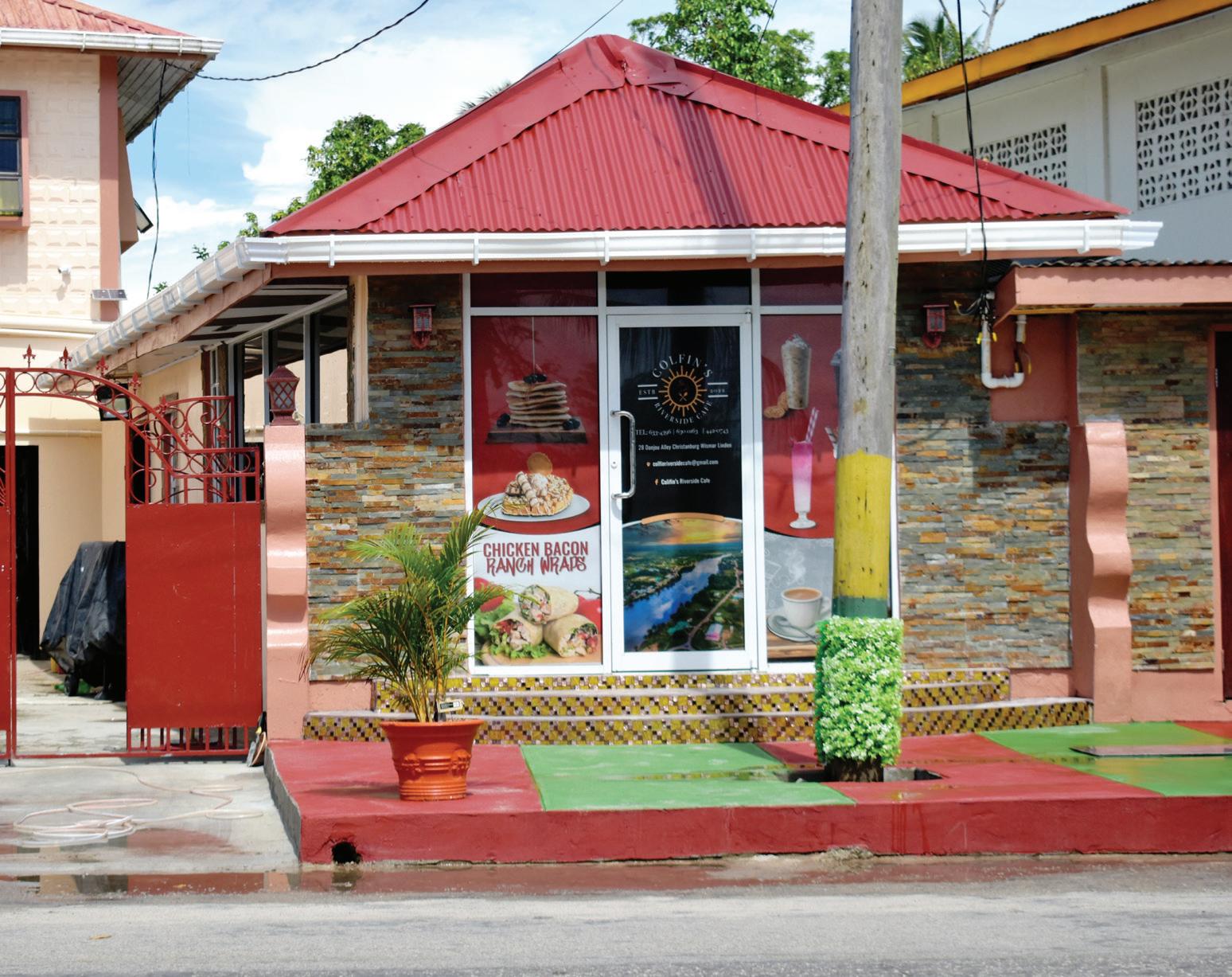
VIII CHRONICLE PEPPERPOT Sunday, October 16, 2022
Colin Small (Carl Croker photos)
Colin Small in front of his café
Colfin’s Riverside Café
‘Football is part of who we are’
could be rehabilitated and become gainfully employed and contribute to society.

RONALD Douglas was one of the best among his peers back in the days when he only ate and breathed football, but after he was injured, he retired 20 years ago, and today, he serves as a coach for the youths in the ghetto (Beauty Alley) Christianburg, Wismar, Linden.
shady mango tree at the street corner, which is the ideal lim ing spot for the locals, mostly men of the village who would gather there every day to sip and chat.
Douglas related that life in the ‘ghetto’, that is, the depressed community, is tough because there is a lot of potential among the youths
As it was a typical day, a national holiday in Guyana on Monday (Youman Nabi) a lot of men, both old and young, were gathered there to spend time and even the children would stop by on their way in or out of the community.
At times, the youths would play friendly football, and cricket is another sport they would like to try but lack the resources.
This community is the home of the Eagles United FC; mostly young men and school-children are part of the team.
“For us in this section of Linden, football keeps us motivated and together, and I want to give back to the young people via football coaching and I would en tertain them when the need arises,” he said.
was drawn to football since he was young and as a mem ber of his team of 30, where they have junior and senior
members, he is playing his part as a sportsman.
“With not much happen ing in the village, I see sports as a way to occupy my spare time,” he said.
McAllister stated that most games are played at Christianburg Ball Field or McKenzie Sports Club Ground.
This team won several games; their last was on Monday, right in Linden.
THE YOUNGSTERS
Qushon Lewis is 13 years old and he plays football for his school, Wismar/ Chris tianburg (Multilateral)Sec ondary School with Eagles United FC.
This young man told the Pepperpot Magazine that football is his sport, his game to keep fit and the players inspired him to become a part of the team.
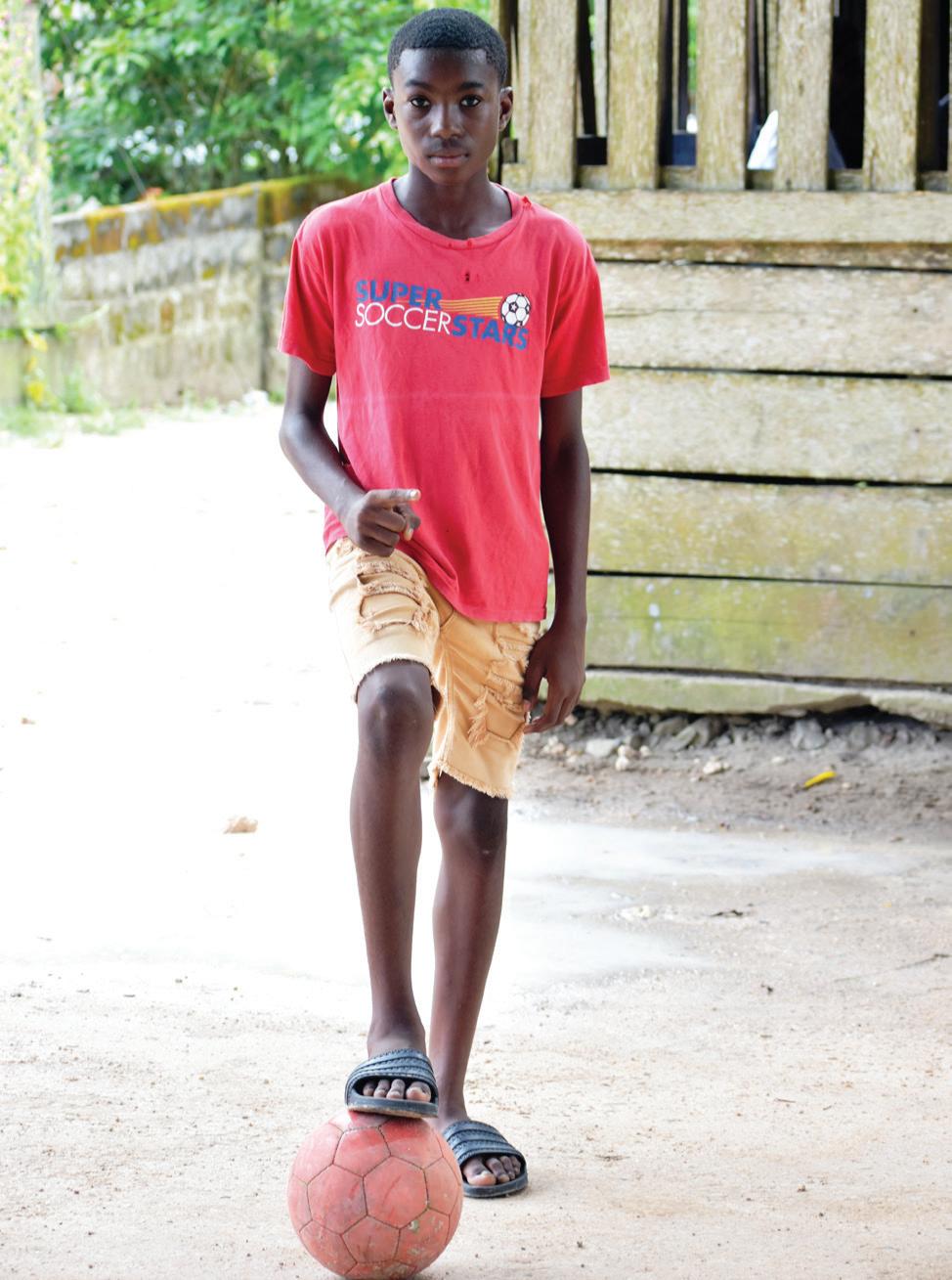
His team has won its game in the city at second ary school level and he feels good about the winning and is of the hope he will become a national player for Guyana.
Lewis related that his parents support him fully in football and it is his dream to represent the country.
Osaze Blair is 12 years old and he is also a mem ber of the Eagles United FC team under 15 and was

The 53-year-old told the Pepperpot Magazine that he used to play for the Net rocker’s Sports Club in the mining town and he had a good run while he was an active athlete.

In his time, he was called the local ‘King Pele’ and was touted as an excellent player.
When the team caught up with him, he was with the boys sitting under the large
in sports, but without steady jobs, there isn’t much to look forward to.
He explained that the youths have become disen chanted due to the lack of jobs and have been led astray and are doing things they ought not to.
Douglas added that with the proper intervention of sports, recreational activities and skills training, the youths
Douglas reported that they need street lights, better drainage since erosion and flooding is a regular happen ing in the village and some good infrastructure to en hance the lives of the locals.
DELON MCALLISTER, FOOTBALLER

Delon McAllister is one of the members of Eagles United FC team and he is a construction worker and a resident of the village.
The 25-year-old told the Pepperpot Magazine that he
IXCHRONICLE PEPPERPOT ― Sunday, October 16, 2022
- ‘Beauty Alley’ Residents
Ronald Douglas (Carl Croker photos)
Qushon Lewis
Osaze Blair
Delon McAllister
TURN TO PAGE X
THE COMMEMORATION OF THE ATLANTIC HOLOCAUST, A PAINFUL JOURNEY
And so, it is, not every jour ney down memory lane is one we enjoy. The Annual Holocaust commemora tion conducted by ACDA on October 12, 2022, in respect to those who are part of our national and bloodline ancestry reflecting on their journey of horror bound on Slave Ships and

for those who survived the journey is one such neces sary journey. The life they endured enslaved towards the shaping of hostile rain forest lands into plantations, then townships, cannot be faintheartedly forgotten without mental and spir itual consequences. Thus, we are sensibly committed
to revisiting and exploring the legacy of the memories of those who came before us, memories from the records of their day, and the social and cultural values within us that remain as fruit notes upon life’s learning tree.
The Africans who were sold into slavery were in most cases prisoners of war,
victims of tribal Kingdom expansion as a result of the need to eliminate enemy tribe folk with the potential to offer potent resistance to vassal hood existence. Then there were those who had for some reason lost favour with their own tribal upper hierarchies, and there were those who were victims of African slave raiders, collaborating with Eu ropean slave-trading cabals; slave traders also linked to Af rican slave trading kingdoms.
The journey within the hold of a slave ship was a torturous and terrifying ex perience that produced varied forms of resistance. In a few cases, ships were taken, some slave ships freed on the high seas became a part of Euro pean pirate fleets, many Pirate ships were staffed by Africans, see-PIRATES: Terror of the high seas by JG Press. In many cases, suicide was chosen rath er than face whatever fate lay ahead, unknowing at the time; ‘the intended life of slavery’.
Plantation slavery was not an accepted and resolved fate to the Africans cast into this mechanism. There’s another new book by Mar joleine Kars-BLOOD ON THE RIVER- (of the Berbice Slave Rebellion-Revolution),
that adds new clarifications gathered from archives our local historians would not have had access to. This text is necessary for public and private libraries and reference bookshelves.

The Atlantic Holocaust embodies the symbolic burn ing of physical ties to the ‘Motherland’ but there is an ancient African mythology of change that, to me, embodies the process of destruction and restoration; that of the Bennu Bird. This sacred bird also known as the Phoenix, embodies resurrection from ashes or through the belief of transmigration, which today we most likely describe as genetic inheritance. There fore, with people and cultural traits, what may become dor mant through repression, will express an adjusted and con textualised expression within a new experience of self.
Slavery was never without its rebellions, its desertions and Maroon communities.
The local militia of old Sta broek was forever seeking Maroons at the Sunday Slave market situated where Demi co house is today, who would bring their vegetables and citrus fruit to trade with the crewmen of visiting merchant

ships and the population of Stabroek. The inheritance of moral, cultural, historical and social activism is an ardent survival tool. Its elements are activated in commemora tions like the ‘Trans-Atlantic Holocaust- Commemora tion’ that embodies a back ground and experience pool of relevant and enlightening information, as important as a DNA test, that will not be readily taught through any other popular medium. In many varied ways, this simple meeting of descendants and understanding citizens with the sea, is a modern ritual that connects through understand ing, why Guyana exists as a nation today, chartering each chapter, defining each wave of its evolution towards a full comprehension of who we are.
In closing, I do exalt the efforts to preserve both the tangible and intangible her itage, an inseparable neces sity towards the confidence of coming to terms with the course of evolution that we endured, permitting us to look forward with a better awareness of our sacrifices, failings, and assets, thus to take refuge in the confi dence that constitute, who we are.
‘Football is part of...
FROM PAGE IX
introduced to football in his village and he started to play for his school, Wismar/ Christianburg (Multilateral) Secondary School in Blue berry Hill.
He recently started play ing football and so far, he is enjoying it because the older members of his team would provide moral support and coaching to keep him mo
tivated. Blair is a midfielder and he trains when they have to because he wants to become a professional sportsman.
X CHRONICLE PEPPERPOT Sunday, October 16, 2022
The ‘Chill Spot’ of Beauty Alley
The legacy of German’s Restaurant
When we hear about German’s Restaurant, we instantly think about soup. I should say it’s the best soup in town. I visited Ger man’s New location in the Giftland Mall intending to enjoy a delicious soup. Some times I forget the va riety of dishes they of fer. The lasagna com manded my attention as I glanced at the display case. I looked at everything else but my eyes went back to the lasagna. This meal stood out like the most beautiful and confident woman that fills a room with her presence and everything else fades when she is around.
you reading this col umn. The salad was also delicious. I sat in the food court observ ing as patrons bought from this new location. I must congratulate Clinton and Hubert Urling (Junior) on this new expansion and for the consistency in the standard of their food. Having a vision is one of the most important elements in charting our courses and this vision manifested 62 years ago. As a young child growing up in Bartica, I first heard the name mentioned by family members who visited the city.
German’s Restau rant began in a mod
the working class crowd in the area. Fast forward six decades later, the restaurant still has the reputation for the best Guyanese creole dishes anywhere to be found in the world.
“Our soups are made from scratch daily using recipes developed over 60 years ago by founder Hubert “German’ Urling in his Tiger Bay, George town kitchen. German’s soups use fresh local ingredients and natural meats and produce that are never stored but are purchased daily to en sure the freshest and yummiest soups any where in the world. Ad ditionally, we use only the highest quality in
serving Guyanese cui sine and is well-known for its unique soups.
The dish was talking to me without saying a word, so that was my choice, with potato and egg salad. We eat with our eyes first. Hence, presentation is impor tant for restaurants. She did not disappoint because it was one of the best lasagnas I have eaten. I was telling this to my friend Raquel who agrees with me and maybe many of
est, small shop in the Tiger Bay, Georgetown neighbourhood in 1960 by its founder Hubert “German” Urling. Urling had created flavourful and unique recipes for local Guyanese dishes, which he learnt from his grandmother who is of Chinese and Guyanese heritage. However, his legendary cowheel soups created a buzz and be came very popular with
gredients to ensure our soups are always tasty, creamy and thick,” the brother proudly shared.
German’s is one of the oldest restaurants in Guyana and has been in existence for over 62 years with its flagship store located at 8 New Market Street, George town.



The company has a rich culinary history of
It is one of the few indigenous companies to have ventured over seas with the opening of a branch at 410 Uti ca Avenue, Brooklyn, New York, in the Unit ed States in 2018. The Brooklyn operation is located in an area that is heavily populated with Guyanese and Carib bean nationals living in New York. The company has done a lot to raise the profile of Guyanese cuisine, which is often overlooked overseas in favour of Jamaican and Trinidadian dish es. “German’s has a history and unique prod ucts which have caught the attention of both the Guyanese diaspora and people of non-Guyanese background and per suasion living in NY to notice and patronise the establishment and by extension expose the culinary traditions of Guyana to a wider au dience in New York,” says co-owner Clinton Urling.
The restaurant has managed to thrive in its new environment and
has received attention from the mainstream and culinary NY media, including the New York Times, New York Maga zine, ABC Television News, Eater, Gotham Magazine, to name a few. All Guyanese should be proud of this accomplishment because I am not aware of any lo cal restaurant brand that has accomplished this.
Another special feature also is that it was accom plished by a single fami ly and they are only now getting started according to Clinton Urling.
“We are looking at a location in New Am sterdam, Vreed-en-hoop looks promising, some where along the East Bank and HighWay. All those are potential sites

XICHRONICLE PEPPERPOT ― Sunday, October 16, 2022
TURN TO PAGE XIII
Mental Health focus beyond October 10

IT’S always great to see the overwhelming support for mental health care and those individuals in need of support on special days like World Mental Health day, World Suicide Prevention day, and so. Still, recent reports served as a reminder that there must be that energy on the rest of the days of the year.
Last week, I wrote about the need for more psycho logical support in schools. This week was a stark re minder that our mental health challenges and shortcomings extend far beyond schools. This reminder came from a report about the heartbreak ing plight of a majority of the patients at the National Psy chiatric hospital in Region Six (East Berbice- Coren
tyne).
For years, this facility and its services have been cause for much concern.
As a reporter at the Guyana Chronicle, the first Sunday lead story I ‘clinched’ was a 2016 article detailing a for mer Health Minister’s wish to demolish the structure be cause of its deplorable state.
Since then, I acknowl edge that there have been efforts to improve the facility. Yet, a physical transforma tion has done little to cater to the crucial needs of people; that physical transformation can’t meet their needs.
Why I say this because the current Minister of Health Dr. Frank Anthony, noted, last week, that more than half of the over 200 patients
in that facility can be dis charged. Yet, the local health authorities are forced to keep them there because there is no family, community, or support system for them to return home to.
And that’s telling about how we treat mentally ill individuals here.
Stigma and discrimina tion have been longstand ing issues. I mean, our laws criminalised suicide (so you could go to jail for attempted suicide. Jail, not to profes sional care). Our 1930 Men tal Health ordinance was also an outdated, archaic piece of legislation that was only repealed this year with the passage of the new Mental Health Promotion and Pro tection Bill.
Then there’s also the availability of resources, including healthcare profes sionals equipped to support individuals in need. As I wrote last week, there aren’t enough professionals for each school. So imagine how stretched thin the existing crop of professionals must be to respond to the broader societal needs.
Fortunately, the Health Minister also said, last week, that new training could see all doctors at health centres across the country trained to identify depression, at least, in a bid to detect mental ill nesses early. It is a six-week programme comprising sev eral modules and the Health Minister said within the “next couple of years”, all of these
healthcare workers should be trained. This move, he be lieves, could see more people getting the necessary support much earlier and, ultimately, save lives.
Those aside, there is still concern about how we inter act with each other and view mental illnesses. I’m not a mental health professional, but I don’t believe it takes a genius to figure out that men tal health is not treated nearly as seriously as other aspects of health. That’s probably a poor comparison to make, yet, it appears to be the case from too many indications. Too many of us rather laugh about people showing signs of a mental illness than help them get the necessary as sistance. Too many of us still
think of depression, anxiety, and other illnesses as signs of weakness instead of serious health concerns.
How can we support peo ple if we invalidate their experiences?

There are these consid erations and so many more to mull over when we think about mental health and healthcare, generally, in Guy ana. But I hope that we don’t wait for another October 10th to observe World Mental Health day and only then re member that there are many problems to be solved.
If you would like to dis cuss this column or any of my previous writings, please feel free to contact me via email: vish14ragob eer@gmail.com

XII CHRONICLE PEPPERPOT Sunday, October 16, 2022
The legacy of German’s...
for our location, but no firm commitment. In New York, we are look ing to expand to Liberty Avenue at some point in Little Guyana, in Queens. We also plan to build a corporate head quarter that will include a state-of-the-art sophis ticated, very modern kitchen to house all these expansion plans that we have, we are looking to do more, getting into the catering business also. That kitchen will be larger, with modern equipment so that we



can do faster production of meals and also meet some of these new op portunities that are being presented. Right now, we are seeing an eco nomic expansion hap pening, lots of commer cial activities opening up new areas of consumers and that’s one of the rea sons we are at Giftland. When you go to Giftland and see the foot traffic Roy Beepat and the Gift land team have created there. It’s nothing short of phenomenal,” Url ing said.
One of the things I
admire about Clinton is the way he values his staff and his desire to see them do well. During the time when people were letting staff go, he thought about their livelihood because their families depended on it. We need more companies to care about their em ployees and commu nity well-being as we continue to celebrate this beautiful journey called life BEYOND THE RUNWAY.
XIIICHRONICLE PEPPERPOT ― Sunday, October 16, 2022
FROM PAGE XI
OLD AGE COULD BE TRANSFORMED INTO A TIME OF CREATIVITY AND JOY
ON October 1 every year, the International Day for the Elderly is commemo rated under the auspices of the United Nations. The theme of this year’s com memoration is “Resilience of older persons in a chang ing world”.Indeed, the en tire month of October is dedicated to the elderly in most countries. In Guyana, the state has instituted a number of programmes and events which relate to the elderly and these include the establishment of the Centenarian Club where centenarians would be given regular medical packages, food hampers, fruit baskets and regular medical check ups with doctors and nurses visiting the centenarians at their homes. There was also an increase in Old Age pensions and improvements in mental health treatment with a focus on dementia. The Minister of Human Services and Social Security also pledged her Govern ment’s continued special help to the elderly.
Four or five centuries ago, comparatively few per sons reached the age of 65, which was caused by the high mortality rates worldwide. From the 19th century, public health systems began to be established; potable water be came progressively available; sanitation began to be taken seriously by governmental au thorities and societies across the world began to be con scious of environmental con cerns. Medical sciences made great progress in life-saving. These improvements caused the death rate everywhere to be dramatically reduced and today, 900 million are over the age of 60 and it is estimat ed that by 2050 two billion people, or nearly one-quarter of the world’s population, would be classified as elderly.
The life expectancy in Guyana is 70 years, but in some of the developed coun tries, it is much higher. In Japan, for example, it is 85 years. Though most people hope for long life, ageing brings with it its own chal lenges and problems. These include the fact that the hu man body weakens and the
systems of the body begin to malfunction. This results in heart disease, hearing and vision impairment, arthritis, a tendency to fall down with the possibility of fracturing bones, restricted mobility, dementia, depression and so on. To meet these challenges, there are many medicines available and aids such as shower chairs, walkers, grab bars, canes, and wheelchairs, some of which are motorised and rubberised anti-slip floor mats.
Most older people, except they are disabled by stroke or other disabling ailments, desire to be independent and to help themselves as much as possible. They would try to cook, clean, pay their bills, dutifully take their medicines, shop, answer the telephone and, as far as possible, con tinue to do such chores and live a life of normality.
Sooner or later, however, they would require the help of some other human being, which could take the form of someone helping one around, of a caregiver, nurse, or even being placed in an Old Peo ple’s Home. All elderly per sons who would have arrived at this state would prefer to be with their families if such ex ists. At this point, the elderly would have been placed in an extremely difficult position and this combined with the fear of death, make one’s last days very sad and unhappy.
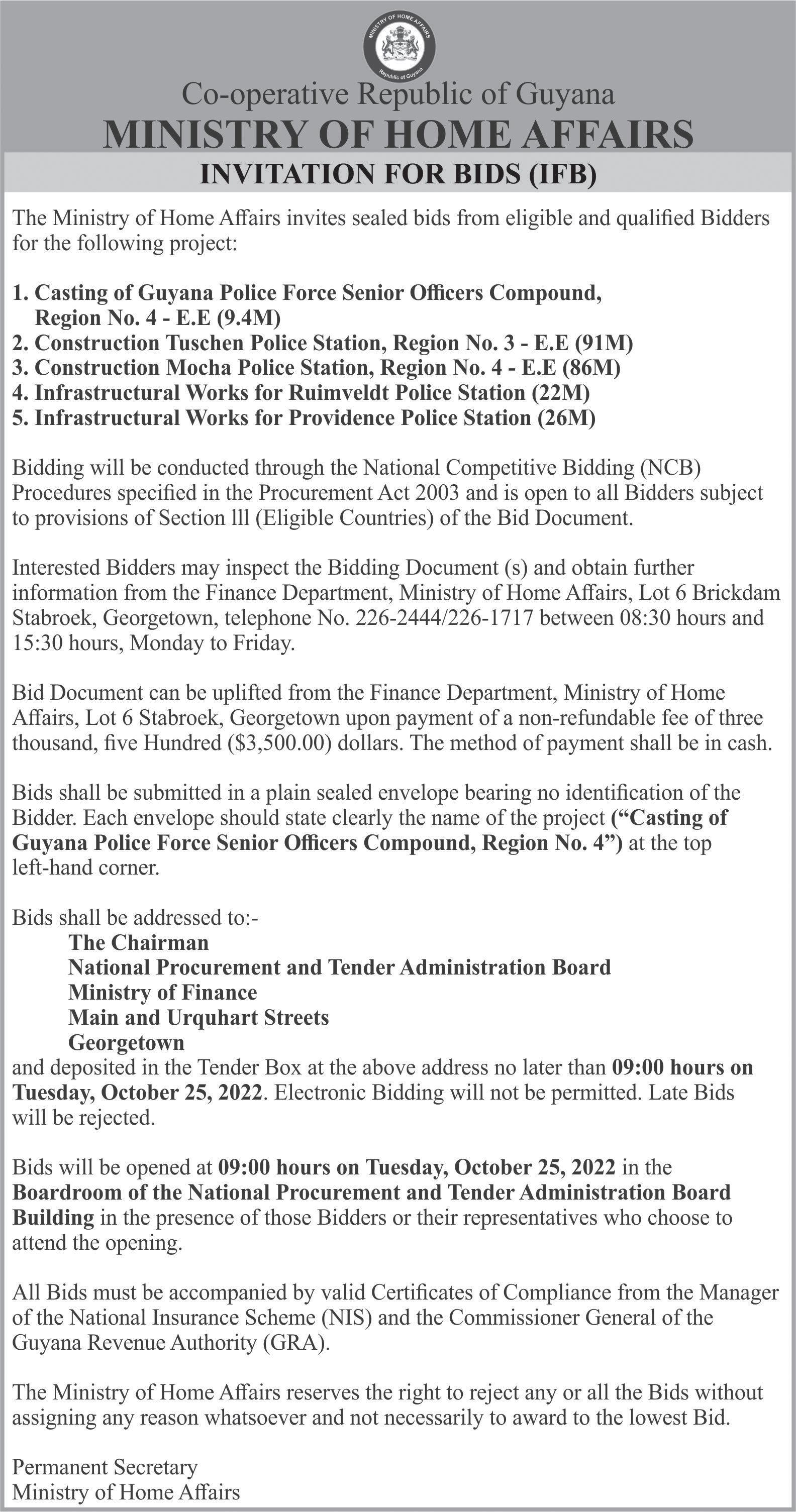

The situation we have out lined above occurs in Western cultures where life is regarded as moving in a straight line from birth to death with no pauses so the various phases of human life occur as, of course, and without prepara tion.
In Eastern cultures, par ticularly the Indian with which many Guyanese are familiar, life is regarded as falling into four, though not exclusive, segments. It also assumes that there would al ways be some family or com munity member(s) available to help in the final two Phases of life. With a notional figure of 100, the First Quarter or Phase of 25 years is spent in Studenthood when one learns the ethics of society, is edu cated in a trade or skill and is
prepared for the world’s work. The Second Segment or Phase is that of a Householder when one marries, raises a family and engages in the world’s work, socially and economi cally. The Third Phase is devoted to public service where one sees one’s children and family settled, renders any help to the community in kind or service and begins to prepare for the Fourth Phase. In the Fourth Phase, one turns to God or a life of the spirit and explores the ways of con quering the fear of death. At this stage, one may try to meet priests and religious and spiritual teachers and may use the Internet in this explora tion. One of the most com mon ways of achieving calm and peacefulness and dispel ling the fear of death is by developing loving-kindness to the world and realising that ‘you are not your body and that death merely means aban doning your dysfunctional body’. There are, of course, other ways.
If we could graft on some of the valuable concepts of the Eastern approach to our Western approach, a more creative way of dealing with the elderly could be evolved. For example, the residents of Old People’s Homes come from the ages of Phases Three and Four and could be encouraged to do pub lic service by teaching to others any special skills they possess; or recording their reminiscences of life to University students who may find such useful in their researches; or may go to nearby schools and tell stories. They may also be encouraged to learn new skills or hobbies such as painting, pottery-making or short story writing. If these positive approaches from the Eastern tradition were adopted, the assump tion by both inmates and the public that going to an Old People’s Home means one is going there to die would be dispelled.
If the Eastern tradition of dealing with the elderly is synthesised with the Western, the elderly will live a peaceful, creative, respected and happier life.
XIV CHRONICLE PEPPERPOT Sunday, October 16, 2022
Start your business preparations now for the busy holiday season


WHILE the focus of this col umn section is primarily on social issues and events, I’d find myself sometimes also writing on entrepreneurship once and far. Apart from my social work background, I’m also an entrepreneur, and I’ve gained tons of experi ence thus far in my years of business. With that said, you probably already sensed an entrepreneurial piece in the works, and you’re absolutely correct. We’re almost halfway through the month of October, and while everyone is hyped up about Halloween and its newfound place in Guyanese pop culture, for now, most businesses are focused on fall and/or Halloween-themed activities or promotions, but there’s still one thing that’s at the back of everybody’s minds—the season of giv ing. For some entrepreneurs, Christmas preparations for their businesses already com menced in July and I am all
for it. Christmas is perhaps one of the largest (if not the largest) seasons for sales and marketing.
The majority of a business’s sales skyrockets during this period. It may be a matter of luck or possibly due to the hard work and preparations a busi ness executes before and during the holiday season. Personally, I don’t believe in luck. You’re probably thinking to yourself -- it’s only October; why is she writing a holiday-inspired
entrepreneurial piece? If you continue to think that way as an entrepreneur, then how can you possibly prepare your business in time for the rush of the holi day? If you check most of the beauty, clothing, and accessories websites online, you’ll notice that they have already launched their holiday collections. These multi-giant companies probably started to plan their Christmas collection last year.
I understand that with small businesses, resources and time

are limited. Nonetheless, you can still be punctual with your online posts, gift collections, and even with your overall marketing campaign. Some customers will start shopping for their Christmas gifts as early as September. Others like myself, may not shop until it’s closer to Christmas. Nonethe less, they may already have in mind what they want to shop from seeing earlier ads or posts about their gift ideas. There are plenty of giant sales around October-November from giant companies such as Amazon and their Prime Day sales or, Black Friday/Cyber Monday Sales. As such, the competition will con tinue to be tougher, especially for smaller businesses. It can also be demotivating because sometimes you’d think; “I can’t compete with Amazon”. Your business should be your own au thentication of what you’d like to sell or provide for customers. It should have a personality and if your targeted customers fall

in love with what you have to provide then not even Amazon can beat that.
That is why your business’s advertising and marketing as pects for the holiday season need to occur as early as pos sible. Your goods and services will become overly saturated with the many existing Christ mas posts during December. The last thing you’d want to happen is for your sheer hard work to become unforgettable because it was buried under hundreds of other Christmas/holidayrelated posts. A great trip for early preparation is to utilise journals, vision boards, or even your notes app on your phone to slowly bring your ideas to life. You can plan it on “paper” before executing it so you have a better idea of where to start and what to do. You should also start buying your stock as early as you can to avoid delays in freight services or hefty holiday charges/fees. You can even start by cleaning up your inventory,
storage, or store space to make the work lighter as you enter December.
You may not be able to complete your tasks before the holiday season kicks off, but it’s better to start and ease off the existing load you’ll have. Starting your preparations early for the holidays also al lows you to complete tasks at a slower, more relaxed pace. You wouldn’t be rushing through the season without taking deep breaths to get things done because you would’ve already completed most of it already if you start your preparations early. I may not be able to provide you with all of the necessary information you may need for your specific business as it relates to early preparations for the holiday season. However, I hope this article motivates you, as a small business owner, to re flect on your existing plans and generate new ones for the holiday season ASAP!
XVCHRONICLE PEPPERPOT ― Sunday, October 16, 2022
How to best co-parent
A FEW weeks ago, I wrote about how to have a healthy divorce and briefly men tioned the importance of healthy co-parenting. I was asked to expand on healthy methods of co-parenting and its benefits for the chil dren involved as a reminder to some who may not be currently doing so.
Co-parenting has been shown to be more compli cated than the divorce itself, as although the marriage may have ended, your family has not. There are judicial cases where courts decide on the nature of the co-parenting schedules, so this is mainly for parents who are attempt ing to best co-parent without further legal action.
It’s best practice to sepa
rate the previous personal relationship from the now co-parenting relationship. It may be helpful to start think ing of your relationship with your ex as a completely new one— consider it as childcentred decision-making with a team member to ensure their positive well-being.

In virtually every case, children suffer due to a di vorce, no matter their age. They feel torn between two parents and the parents’ now separate lives. This means that the parents’ choice of effective co-parenting can prevent mental and physical health issues for the child or children involved. As a par ent sharing custody of chil dren, there are understand able feelings of frustration,
competitiveness, jealousy, and both intentional and unin tentional miscommunication. However, it does not have to be that way; there are many ways to overcome any chal lenges healthily.
The first and most im portant thing is to come up with a mutually agreed upon co-parenting plan. This is a useful tool to allow for healthy arrangements, stable responsibilities, and minimal communication, which is often desired. A good coparenting plan should address consistent living days, visita tion schedules, transporta tion arrangements, education, health care appointments, financial allocation and budg eting, decisions for birthdays, holidays, and other special
events, the person of contact and emergency numbers, etc.
It should contain details of consistent rules that the children will abide by in both households such as meal times and plans, homework schedules, bedtimes, curfews, and types of punishment and rewards when required. This is beneficial for both parent and child(ren) as they won’t have to bounce back and forth between two radically different disciplinary envi ronments, which typically result in drastic differences in relationships with the parents.

Disagree in private and leave the children out of adult decisions. It’s great when you give your children the freedom to be who they are and practise hobbies they are passionate about. However, children should not be decid ing which parent they should live with and when or any of the majority of decisions needed for the co-parenting plan.
Plan out how you intend to spend and split holidays well in advance. Sometimes the biggest days of the year –for example, special religious festivals or birthdays – are the hardest times to work out parenting plans that suit everyone. Being alone on a significant day, without your child, is difficult for many separated parents.
Flexibility and creativity are key components to ensure everyone is happy with the ar rangements. This may include splitting the day in half, cel ebrating other days, alternat ing holidays, and starting new traditions. Depending on their age, it could be important for the children to have some input in this area.
Children thrive on con sistency so that’s exactly how this plan should be practised. Once your co-parenting plan is in place and working, you need to agree on what hap
pens if one of you needs to change the plan or has a change in circumstances in the future. If there are unavoidable conflicts, try to address them as far as pos sible so everyone can plan ahead. The more both parents keep with the pre-determined schedule, the less anxious everyone will be.
For this to go smoothly, there are some important factors to actively take into consideration and practise.
Continuous and effective communication.
Many marriages fall apart due to poor communication patterns, which needs im provement. It helps to know how you best communicate with your ex. Does the con versation go smoother on the phone, via email/text, or in person? The key to peaceful communication is purposeful communication; keep conver sations child-focused.
While it is very impor tant to keep the co-parenting plan regular and consistent, flexibility at times is also needed. If it is an important issue (such as a medical one), the conversation has to keep going. However, if not, learn to compromise, choose your battles, and don’t sweat the small stuff. Be accommodat ing if things suddenly come up for your partner. Trust me, you will need the same favour one day.
Be accessible to your ex. This does not have to mean being at their beck and call but being available if a childcentered conversation needs to happen.
I cannot stress this one enough- do not use your chil dren as mediators or messen gers. When a child is asked to pass a message from one parent to the other, even if it’s something small or neutral, it has very damaging effects- on both their mental health and
their relationship with you.
Show your children that you have respect for your ex-partner. I understand that this may not be easy but it is simple. Don’t ignore their birthdays or any special holi days that may be dedicated to them. In many situations, the child(ren) is/are too young or does not have financial inde pendence. Take them to buy gifts on birthdays, Mother’s, and Father’s Day. When a child does not have a gift or celebration plan for a parent, there is embarrassment and guilt. So, be kind to each other so your child still has a sense of family. Basically, love your child more than you hate your ex-partner.
Respect for each other can go a long way in co-parent ing. It is also beneficial for you both to have a separate and healthy support network for when things get hard, as they will. This can be family members, friends, religious leaders, or mental health pro fessionals.
As a reminder, doing the above well will bring great benefits to your child/chil dren. Firstly, and most im portantly, your children will feel the love and personal sacrifice you both are mak ing to ensure their lives are easier and peaceful; they will feel secure- both with themselves and your rela tionships with them. Watch ing successful co-parenting also teaches children healthy problem-solving and conflictresolution skills, which will ensure their own healthy relationships in the future. And, of course, all the above makes your children mentally and emotionally healthier and less likely to develop mental health issues.
Thank you for reading and please continue to send suggested topics to caitlin
XVI CHRONICLE PEPPERPOT Sunday, October 16, 2022
vieira@gmail.com
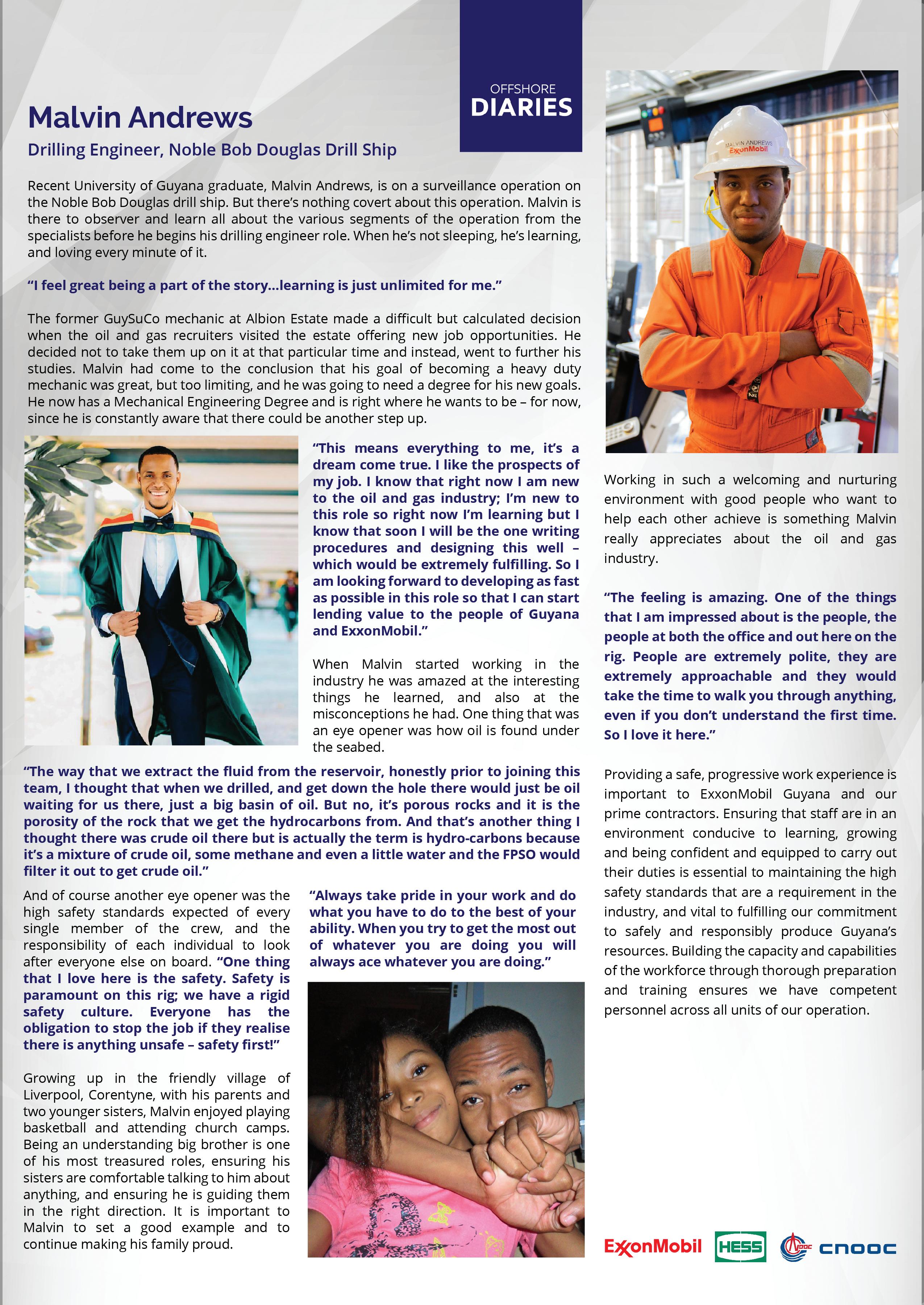
XVIICHRONICLE PEPPERPOT ― Sunday, October 16, 2022

XVIII CHRONICLE PEPPERPOT Sunday, October 16, 2022

XIXCHRONICLE PEPPERPOT ― Sunday, October 16, 2022

XX CHRONICLE PEPPERPOT Sunday, October 16, 2022
The Golden Cross
DAMIEN stood at the top of an old wooden bridge that over looked abandoned cane fields of a former Dutch colony deep in the countryside, scanning the surroundings of the site he and a team of volunteers were as signed to begin restoration work. It was an old Dutch cemetery, long forgotten after the colo ny’s independence, overgrown with untamed trees and wild shrubs. In the shadows, glimps es of the century-old tombs, forlorn and lost with the ages.
Damien smiled a little, an exciting feeling in his heart as they made their way through the tall brushes and razor-sharp grasses to pitch the tent. These ventures were of great inter est to him because of his deep fascination with history. The explorations, expeditions, and discoveries he followed with passion and every summer break since he was a young boy, he had volunteered to work on historical
day, he thought, as the team had halted work for the day.
That night, as Damien slept, he dreamt about the cemetery, the tomb that had captured his interest and the name he could not have seen, then, that now appeared clear, ‘Made line Van Rompage, Sixteen.’
He couldn’t help wondering about the dream and later that day as he continued cleaning the tomb, the name and words were exactly what he had seen in his dream. It was something strange he couldn’t understand and as he looked at the girl’s resting place, he wondered. “How did you die so young?”
A slight gust of wind from nowhere brushed his face and he stepped back, a little startled, then shook his head, thinking, “This couldn’t be happening, not after a hundred years, no-one can be here so long.”
He let the thought go and continued working on oth
The golden cross was ly ing in the open bi ble in the angel’s hands.
Damien couldn’t believe it, he looked around, thinking those nearby might have also seen it but no one did. It was meant only for his eyes. But, why?

Why was the ghost of a girl who died over a hun dred years ago still here?

He said softly to the unseen presence, “I don’t know what this is all about, but at least tell me why you’re here.”
She came into his dreams again that night, a beautiful vision from the past whose life had been interrupted, as she told him, the golden cross had been in her generation for centuries. Its magical powers, a blessing from the church that was like a veil of protection from any evil across any seas; a power that can en hance and enrich their lives. But when she died so young after a deadly illness had spanned the seas, her father, was heartbroken for his only child whose life the magical cross could not have saved. He built a small church in the cemetery with a door that he locked with a golden key and laid her body there with the cross hoping its powers could bring her back to life.
walked up to him, not a whisper nor a word, and clasped the chain around his neck, her cold lips brushing his cheek and she moved back slowly, step after step, a warm smile on her face until she was gone.
Damien stood there for a long time, his heart so over whelmed it brought tears to his eyes. He took a deep breath and then smiled, touching the golden cross on his chest – the first memo
rable encounter in his life – a beautiful ghost, a warm smile, and a magical centu ry-old cross entrusted to him to return –as he continued his walk into the fascinating world of history and myths.
sites with his father on the small islands. Now at seventeen, he was ready to venture further into the world of mystery and adventure.
It was an immense task in this jungle-like area to clear and restore the forgotten ceme tery to its former state and the team members from different countries worked with zeal and dedication. By the time the shad ows of the afternoon hours ap proached, they had cut two clear paths and cleared much of the intruding shrubs that had hidden the surprisingly good-looking tombs, except for a few that were broken by tomb raiders over the decades.
The unique, intricate, cen tury-old designs were amazing, but the one tomb that caught Damien’s interest, that was deep er in the shrubs, was the one shaped like a small church, with an angel standing at the open doorway. He could not discern the name on the open bible in the angel’s hand of who laid there, for the inscription had gotten worn with time and weather. He would try to retrieve it the next
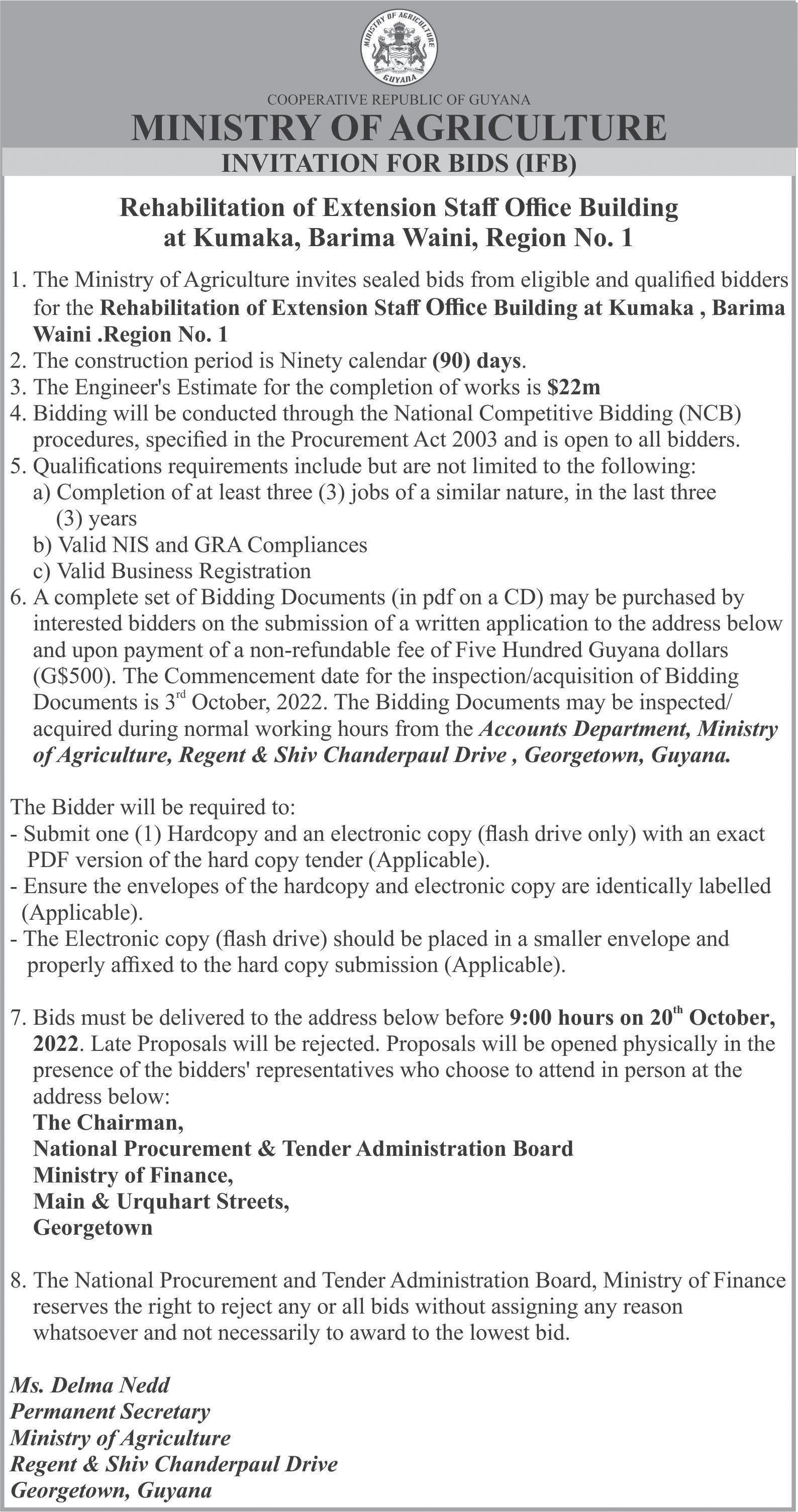
er tombs, but his eyes were drawn, time and time again to the church-like tomb and as he left that afternoon, he turned for a last look and thought he saw something white move between the tombs, then it was gone.
“It’s just your imagination, Damien,” he said to himself. But it was not, as a silent figure in white, her long golden tresses falling down her shoulders, watched them leave and walking to the water’s edge she sat down watching the crimson sunset as she had done for so long. How many decades had passed, she knew not, for her, a departed soul, time is endless.
That night in his dreams, he saw a girl in a long, white colo nial dress, and in her hand, she held a chain with a golden cross she was offering to him. Damien wasn’t sure what to make of the dream and wondered if his pas sion for his work was making his mind replay sequences of histo ry. He did not relate anything to anyone, lest they thought he was weird and as he neared the tomb the next day, he stopped dead in his tracks at what he saw.
Servants were placed day and night by the tomb to respond when she called but she didn’t because the magical cross had not the power to restore life. Her father, a sad and broken man had sealed the door and returned home to the Netherlands, ending the dynasty of the cross. But he had forgotten in his grief that the cross, though a family heirloom, belonged to the church and could not stay locked away for eternity in a tomb in a strange land. It had to be returned and until it did her spirit could not leave.
So, she had waited as the decades passed for that one in whose heart lived a genuine love, passion, and belief for the life, culture, and history of her people to take back home the golden cross. That day he came to the cemetery, she knew her wait was over - he had arrived.
Damien woke and could not sleep again. The girl’s story had touched him so much that he felt a compelling desire to return to the cemetery alone. She was sitting on her tomb waiting, knowing he was com ing; the beautiful vision in his dream, the moonlight glinting in her golden hair, that vision somehow transfixed him for it was something in his young life he had never seen, an entity not of this world anymore that words were not enough to describe. She
XXICHRONICLE PEPPERPOT ― Sunday, October 16, 2022
Self-examination for oral cancer
A PATIENT visited me with a very sad story. She had been diagnosed with cancer. And why did she come to tell me that? Ac cording to her, she first be came aware of her condition after reading one of my arti cles. She asked me to rewrite the essentials of that article because of its magnitude.
No doubt, most peo ple do not know that they can conduct a self-examination of their mouth with reasonable proficiency aimed at detect ing abnormalities of disease, including oral cancer. I will proceed to give step-by-step instructions on how this may be done.
1. Stand before a mirror and look at your face and neck. With your left hand, feel the right side of the neck and the area under your jaw. Repeat for the left side of your neck, using your right hand. Do both sides appear and feel the same? Firm lumps (lymph nodes) located in regions of the neck and below the jaws could indicate disease of the oral cavity.
2. Inspect your lips by first looking at and feeling the outside. Pull the lower lip down using the thumb and forefinger, then feel the inside and outside of your lip. Repeat the same for the upper lip. Do you see any colour changes? Do you feel any lumps?
3. Examine the gums with the lip pulled away. Remem ber to observe and touch all areas of the gums by using the forefinger. Does everything look the same as last month?
4. With the thumb and forefinger at the corner of the mouth, draw the cheek away from the teeth. Keeping the mouth slightly closed, look at and feel the cheek with the fingers. Repeat for the other cheek. Do you see any changes?
5. Stick the tongue and grasp the end with a handker chief. Look at and touch the top surface. Pull the tongue to the right and then to the left. Observe and touch each side. Do you see any lumps or sores or growths on the tongue?
6. Next, touch the tip of
your tongue to the back of the roof of your mouth and look at the floor of the mouth and the underside of the tongue. Feel this area in the same manner as before, using the forefinger. Do you notice any differences?
7. Say “ah” to see the very back of your mouth (throat). You may need a good source of light to be able to view the tonsil area. Tilt your head slightly backwards to see the roof of the mouth. Do you see any scaly patches?
Periodic examinations of the mouth should be done to detect early signs of disease and can reduce the risk of allowing a serious problem to develop. One would not be in the position to notice a change of colour, texture, size, shape, or function unless one regularly inspects the related tissues and organs. Get into the habit of checking out the mouth every day.

You must be able to know when something unusual oc curs within a day of its evo lution. The key to effective treatment of any disease de pends heavily on how early the condition was discovered and how soon treatment is instituted.
Every normal person above the age of 10 should take personal responsibility for ensuring that any abnormal change occurring in any part of their body is investigated by a competent professional.
This is even more im portant for individuals who indulge in harmful activities such as smoking. It is well es tablished that over fifty of the most common diseases have oral signs and symptoms as part of their pathology. Often, these signs and symptoms are among the visible manifesta tions of the disease. One nota ble example is AIDS.
The dentist is therefore in a position to notice the commencement of many ailments, sometimes even before it becomes full-blown. Fortunately, you can be one to discover a serious con dition by yourself before seeking help from qualified personnel.

XXII CHRONICLE PEPPERPOT Sunday, October 16, 2022



XXIIICHRONICLE PEPPERPOT ― Sunday, October 16, 2022


XXIV CHRONICLE PEPPERPOT Sunday, October 16, 2022

XXVCHRONICLE PEPPERPOT ― Sunday, October 16, 2022

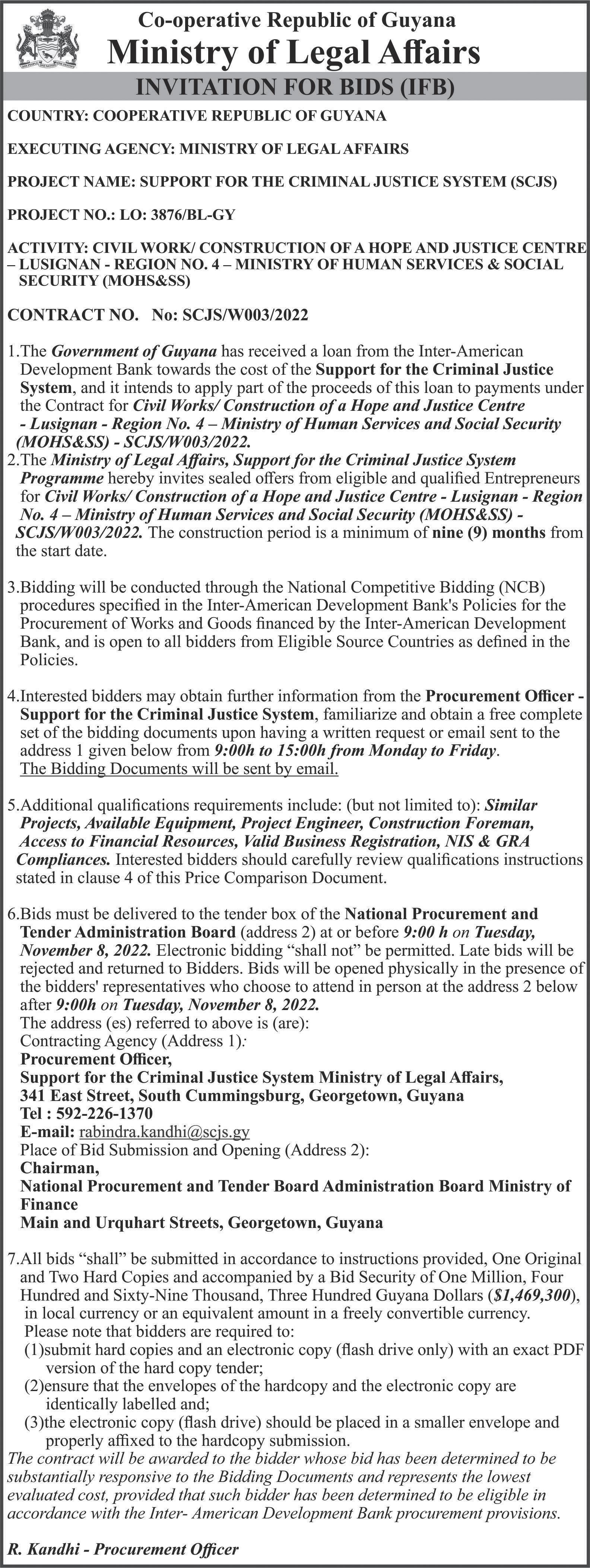
XXVI CHRONICLE PEPPERPOT Sunday, October 16, 2022




XXVIICHRONICLE PEPPERPOT ― Sunday, October 16, 2022




XXVIII CHRONICLE PEPPERPOT Sunday, October 16, 2022



XXIXCHRONICLE PEPPERPOT ― Sunday, October 16, 2022



XXX CHRONICLE PEPPERPOT Sunday, October 16, 2022


XXXICHRONICLE PEPPERPOT ― Sunday, October 16, 2022
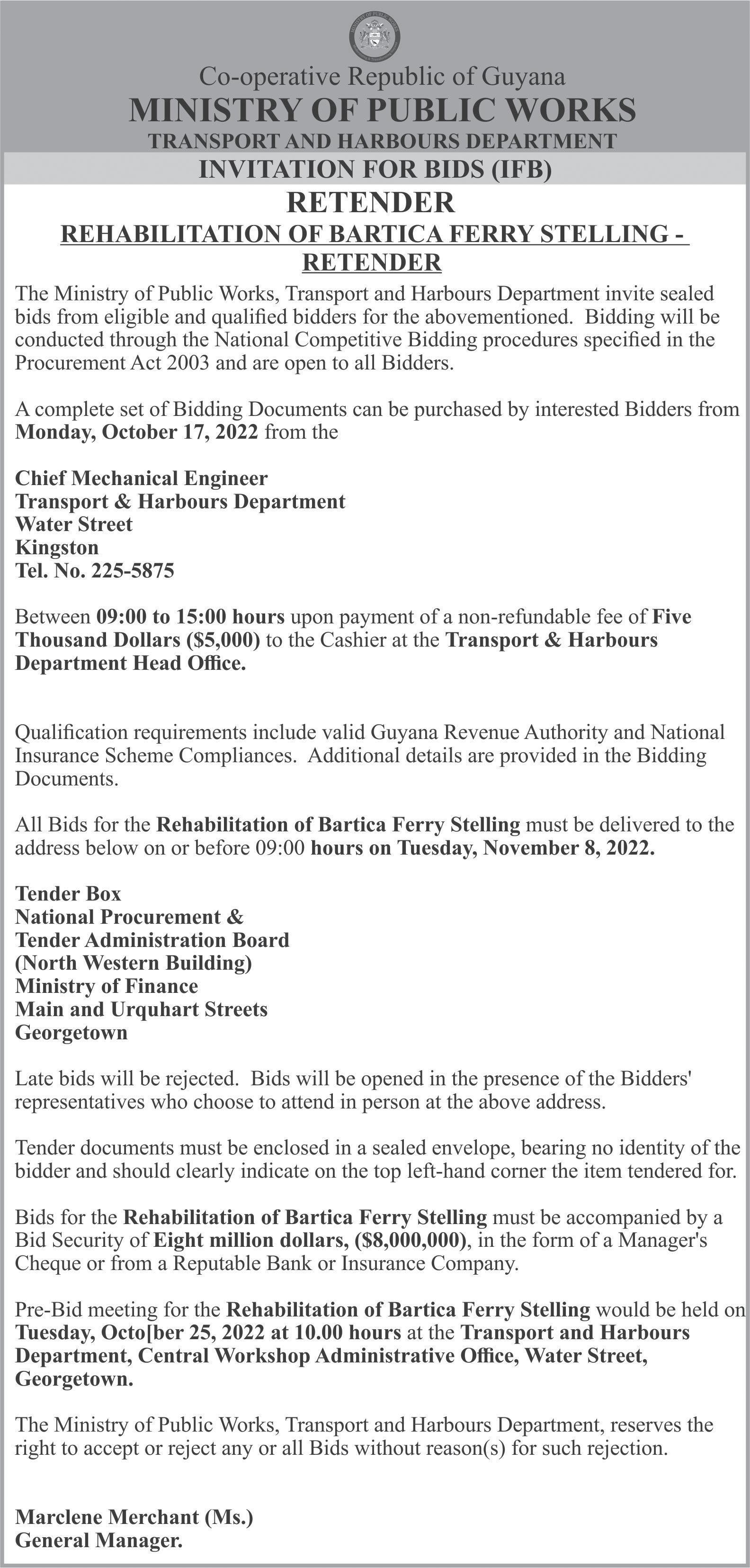


XXXII CHRONICLE PEPPERPOT Sunday, October 16, 2022

XXXIIICHRONICLE PEPPERPOT ― Sunday, October 16, 2022
THOUGHT FOR TODAY
Eclipse first,the rest DENNISnowhere.O’KELLY (1720?-1787) Epson, 3 May 1769 An-nals of Sporting
STUDY SUCCESS
Dear Student, Welcome dear friend. Do effective study throughout your preparation for that decisive examina tion. Avoid starting to ‘do something seri ous’ only a few days before examination. Prepare for a bright future. Review your notes after each class or assignment. Concentrate and avoid distractions when the
teacher is speaking. Study in groups with cohorts for it is the greatest way to retain new material. You get to ‘teach’ each other, review, and apply your learning throughout preparation time. Be wise.
Love you. THE PASSAGE
Read the following extract carefully and then answer items 1-5 based on what is stated or implied.
The View from the Terrace
Marcus wheeled himself out to his ac customed place at the table on the terrace and the sight struck him im mediately. How could it not? It was an abomi nation, a desecration, a heresy, a sight unbe lievable. There was a house on the hillside! His hill, the one which overlooked the village and which his terrace faced. It was a small house to be sure; he es timated it to be no more than twenty feet by twelve, with one door and one window on the long side which faced him. From the distance, it was no more than a doll’s house, or what a child might draw; a wooden hut similar to those which sprung up daily in the squat ter settlements which everywhere littered the hillsides, ringing the city, visible evidence of society out of control. But his hillside wasn’t a squatter settlement and no other house marred his view. His house sat on a slight rise above the village in the valley, and from there he had an uninterrupted view of the mountains on all sides. Far away, there were houses, proper ones, that is; but none close enough to mar his vision.
(Source unknown)
1. Which word BEST describes the homeowner’s attitude toward the hillside near his house?
(A) Angry (B) Honored (C) Pleased (D) Possessive
2. The words “struck him” suggest that to the homeowner the sud
den appearance of the squatter’s house
(A) stirred repul sion at the nature of the home
(B) awoke interest in how quickly it was built
(C) aroused shock at the unexpected neigh bour
(D) stimulated pain because of the loss of privacy and control
3. The phrase “sat on” tells us that the house is
(A) set into the hill side (B) comfortably situated
(C) precariously lo cated (D) fitted di rectly on the hill
4. Which of the fol lowing did the home owner believe gave him the right to claim the hill?
(A) Its proximity to his home.
(B) It was not easily accessible.
(C) He had forever been overlord of the scenery.
(D) No one had moved in for some time.
5. Which words BEST sum up the homeowner’s view of squatter’ settlement?
(A) “sprung up dai ly” (B) “society out of control”
(C) “marred his view” (C) “houses, proper ones”
GRAMMAR
From last week
A.. 1. “Buffaloes” was the word ....
2. A long list of 216 words was ....
3. Either one word or a list of words are good for the occasion ....
4. SPAR is one of the words that were in Inez’s crossword solu tion ....
5. No shoes, hat,
or tie was in Johnny’s locker ....
6. No paper, pen, or pencils were in San dra’s possession ....
7. Genevieve, Jean’s friend, was the school language club’s presi dent (Please note cor rected subject) ....

8. Annie, not Burnie’s friends, was responsible for the lost Foreign Language file
9. Godfrey, not Nicole’s brother, was featuring in the carni val ....
10. A long list of re trenched workers was gathered outside the compound ....
B.. 1. Every father, mother, and teacher is contributing ....
2. Many a one have attempted that dreaded examination ....
3. More than one child in a family have lots of problems ....
4. More teachers than one have failed to correct ....
5. I know of one who has spent most of her career trying ....
6. Do you know of anyone who has good mastery in all his or her ....?
7. It were the chil dren who paid much at tention to their school work ....
8. The successful children were those who had parents ....
9. The children, not the older people, are the ones who ....
LETTER WRITING
Business Letters

Asking Favours
Another type of persuasive letter that sometimes must be written is one request ing a special favour.
Of course, these letters
should have the same characteristics as any other persuasive letter, and they are organised according to the per suasive letter plan given about two weeks ago.
Dear Mrs. Samuels: Your very interesting article in the August issue of “The Adminis trative Assistant” maga zine prompted me to write you.
The Greater George town chapter is having its annual Administra tor-Secretary Night on Thursday, November 26. Our members and their administrators (we expect about 84 people in all) have expressed a particular interest in hearing a lively talk on letters secretaries can send in their adminis trators’ absence. We are especially interested in having our adminis trators hear something about the secretary can do to help the employ er with communica tion problems. Our programme calls for a 30-minute presentation from the speaker.
Would you be able to address our group on November 26? You can build your speech along the same lines as your article, if you wish. As you know, this night is the highlight of our year’s meetings, and we would be pleased to have you as our guest speaker.
I hope you can ac cept the invitation, Mrs. Samuels. If you can, I will write you again giving you all the details – time, place, and complete programme plans.
Sincerely yours,
XXXIV CHRONICLE PEPPERPOT Sunday, October 16, 2022
October 16, 2022
Environmental guidelines for poultry rearing

THE Environmental Pro tection Agency (EPA) has a mandate to take necessary steps for the management, conservation, protection, and improvement of the environ ment. As such, it takes steps to prevent or control pol lution; assess the impact of economic development on the environment, and promote sustainable use of natural resources.

Over the years, one step the Agency has taken is to develop regulations, strategies, action plans and guidelines to support its efforts to curb some of the
is made started with a few chickens, but then expanded to a large number of birds without putting in place the neces sary environmental, health and safety measures.
This week’s article presents the essentials of the Environ mental Guidelines for Poultry Rearing. The objective of this article is to inform both farmers and consumers of the measures that must be in place in order to operate poultry-rearing facili ties to safeguard the environ ment and human health.
Who needs Environmental Authorisation?
There should be an effec tive drainage system around pens, which allows all wash ings from the pen to run into the exit drains.
*MANAGING SOLID WASTE
Different types of waste are produced from poultry-rearing operations, and it is important to manage them, especially when large volumes are pro duced. This needs to be done to avoid causing discomfort to neighbours and workers at the poultry farm. Measures that should be taken to effectively manage poultry waste emanat ing from poultry-rearing opera tions include:
*FEED STORAGE: Feed should be kept in a specific area that is dry, well-ventilated and meshed to avoid pests. Install storage racks 15-30 cm above the ground to prevent absorption of moisture and contamination;
www.epaguyana.org.
Join us next week for more on our Poultry Rearing Guide lines.
You can share your ideas
and questions by sending letters to: “Our Earth, Our Environment”, C/O ECEA Programme, Environmental Protection Agency, Ganges
Street, Sophia, GEORGE TOWN, or email us at: eit. epaguyana@gmail.com or follow us on Facebook and Instagram.
more persistent environmental issues. This week, we will ex amine the EPA’s Environmental Guidelines for poultry rearing.
With the growing fastfood industry in the country, the demand for poultry and its products has increased. Poultry rearing is a quick, convenient business that not only supports the local demand for poultry in the fast-food business; it also creates jobs and income-gen erating opportunities, which is particularly important to smallscale farmers. An unfortunate fact, though, is that if not done correctly, poultry rearing can have negative consequences for the environment and hu man health. Poorly managed poultry rearing operations can result in odour nuisance, water and land pollution, and lead to human health conditions of the skin, eyes and ears. Further, waterborne diseases such as diarrhoea can be caused by polluted water emanating from poultry-rearing facilities.
In poultry rearing, cer tain considerations must be taken to prevent associated issues that have the potential to compromise the quality of the environment and human health. The EPA is regularly in receipt of complaints related to poultry-rearing activities, and, more often than not, the busi ness against which a complaint
If you plan to set up, or are operating a poultry rearing operation with 500 birds or more, then you need to apply to the EPA for Environmental Authorisation. It should be noted that the guidelines below should be considered, even if less than 500 birds are being reared.

*LOCATION:
The best location for poul try-rearing facilities is in agri cultural areas where there are existing farmlands. Poultry rearing operations should be at least 50 metres (164 feet) downwind from residences, schools, hospitals, etc. and water bodies.
*HOUSING:
The poultry pen (s) should be designed to allow proper ventilation, and enable workers to perform their tasks easily. The materials recommended for use to build pens include:
*FLOORS: Concrete
*WALLS: Clay bricks, hollow blocks, lumber, round wood, staves, mesh or wattle. Walls should be boarded up to 0.30 m (1 ft.) from the floor, and continued to the roof with mesh or other suitable material for ventilation.
*ROOF: Waterproof mate rial e.g., aluminium sheets, gal vanised sheets, palm, shingle etc. An overhang of 0.90 m (3 ft.) is ideal.
*KEEP ANIMAL WASTE DRY: Instead of flushing with water, remove animal waste and bedding by scraping to ensure that it is kept as dry as possible when being removed. After scraping, the area should be washed with water, prefer ably with high-pressure, lowflow nozzles, and disinfectant.
*USE MANURE AS FER TILIZER: Instead of disposing of chicken manure, collect it and use as a crop fertiliser; however, manure from sick birds should not be used for this purpose.
*STORE MANURE: Ma nure that is to be disposed of should be stored in a roofed area, and away from water bodies, floodplains, wellheads or other sensitive environments until it is ready to be disposed of.
*COMPOST: Other wastes such as cardboard boxes, feath ers, cleaning containers, etc., should be disposed of at an approved site or can be used in compost and reused as organic manure.
*CLEAN STORAGE CONTAINERS: Wash and disinfect containers used to store manure after you have emptied them; this is to avoid the build-up of pests and odour.
We advise all poultry op erators to consider these guide lines. We advise you to visit our office if you are operating without a permit. Addition ally, you can find the complete Guidelines on our website:
XXXVCHRONICLE PEPPERPOT ― Sunday, October 16, 2022


XXXVI CHRONICLE PEPPERPOT Sunday, October 16, 2022










































































































